The 2008 International Achievement Summit took place far from the media centers of the mainland, July 2-5, on the idyllic beaches of Kailua-Kona on the Big Island of Hawaii.
The 2008 International Achievement Summit took place far from the media centers of the mainland, July 2-5, on the idyllic beaches of Kailua-Kona on the Big Island of Hawaii. One hundred and twenty-five outstanding graduate students, drawn from 25 countries, gathered in the tropical gardens of the Four Seasons Hualalai to meet with an impressive assembly of the world’s great thinkers in the sciences, literature, government and public service. Meeting for formal sessions in the resort’s spacious ballroom, and for casual discussions in open-air dining rooms overlooking the sea, Academy members and student delegates enjoyed a relaxed atmosphere, one that facilitated a free-wheeling exchange of ideas, transcending conventional boundaries between academic disciplines, nationalities and political factions.
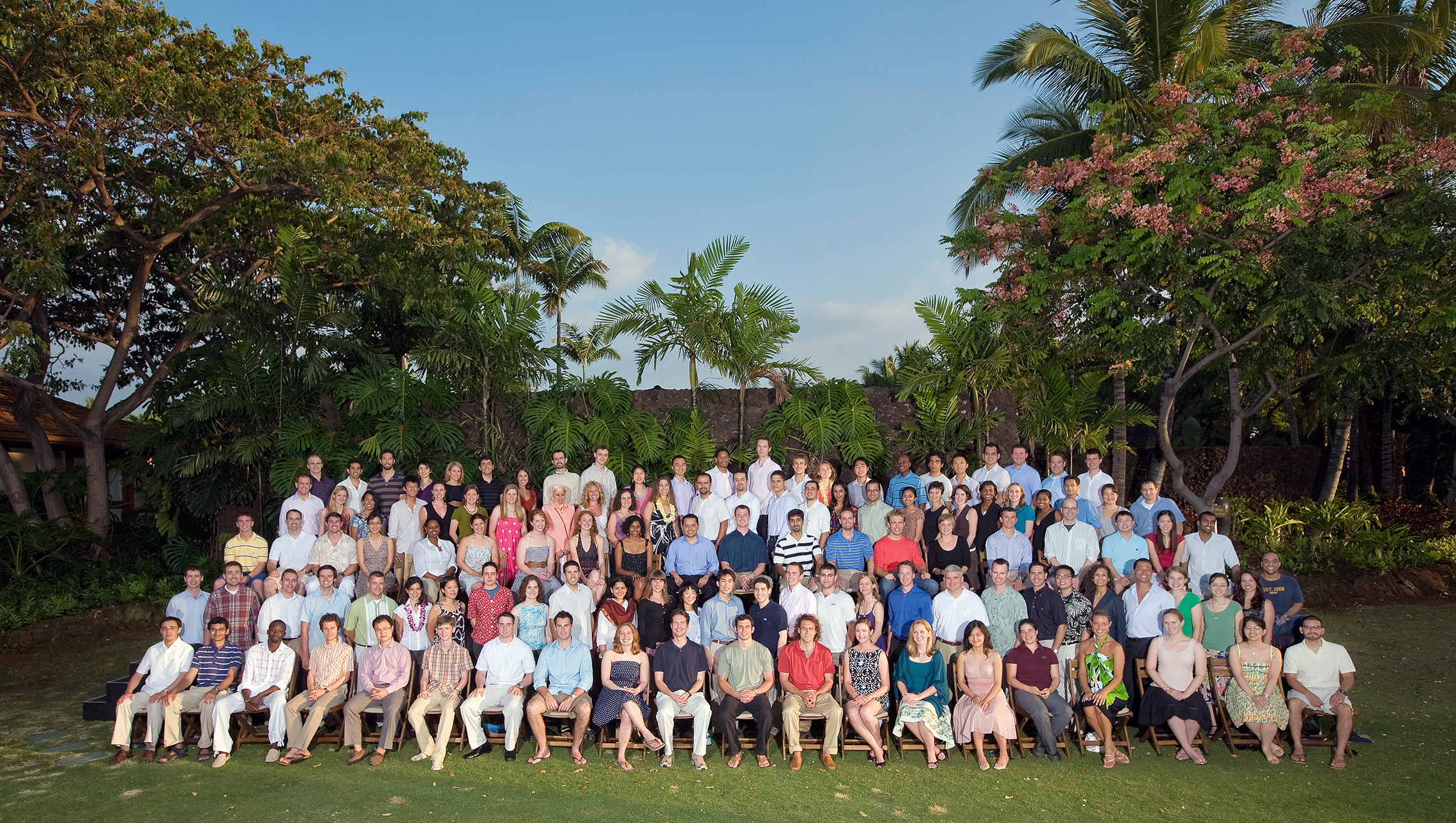
Among the distinguished members of the Academy, old and new, attending this year’s Summit were the President of the Republic of Liberia, Her Excellency Ellen Johnson Sirleaf, and three recipients of the Nobel Prize: the Most Reverend Desmond Tutu, Archbishop Emeritus of Cape Town, South Africa, a recipient of the Nobel Prize for Peace; economist A. Michael Spence; and chemist Peter C. Agre. Three Academy members who have led great American cities attended the Summit: the Mayor of Chicago, the Honorable Richard M. Daley; the Mayor of Los Angeles, the Honorable Antonio Villaraigosa; and the former Mayor of San Francisco, the Honorable Willie L. Brown, Jr. Former NATO Commander and one-time presidential candidate General Wesley K. Clark appeared, as did consumer advocate and current presidential candidate Ralph Nader, and the Honorable William S. Sessions, former Director of the FBI.
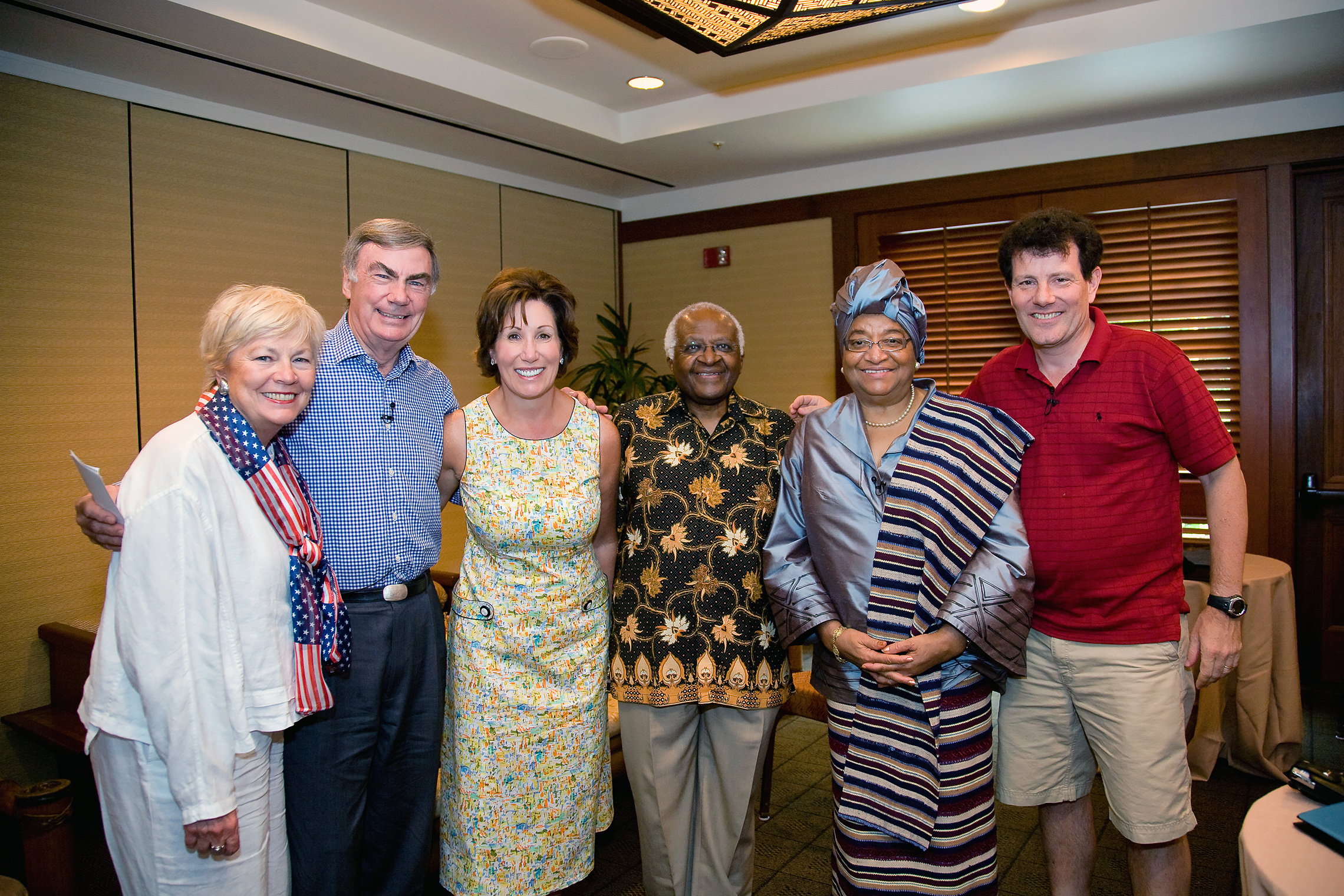
Distinguished journalists in attendance included Sam Donaldson, Chris Matthews, Kathleen Matthews, Naomi Klein and two recipients of the Pulitzer Prize: war correspondent Rick Atkinson and New York Times columnist Nicholas Kristof. The men of letters in attendance included more Pulitzer Prize recipients: author Frank McCourt, poet W.S. Merwin and biographer A. Scott Berg. Other noted authors in attendance included the distinguished scholar of Chinese history Jonathan D. Spence of Yale University, and the author of The English Patient, novelist and poet Michael Ondaatje. The Afghan-American author of The Kite Runner, Dr. Khaled Hosseini, was one of the year’s honorees, as was the explorer and humanitarian Greg Mortenson, author of the bestseller Three Cups of Tea.
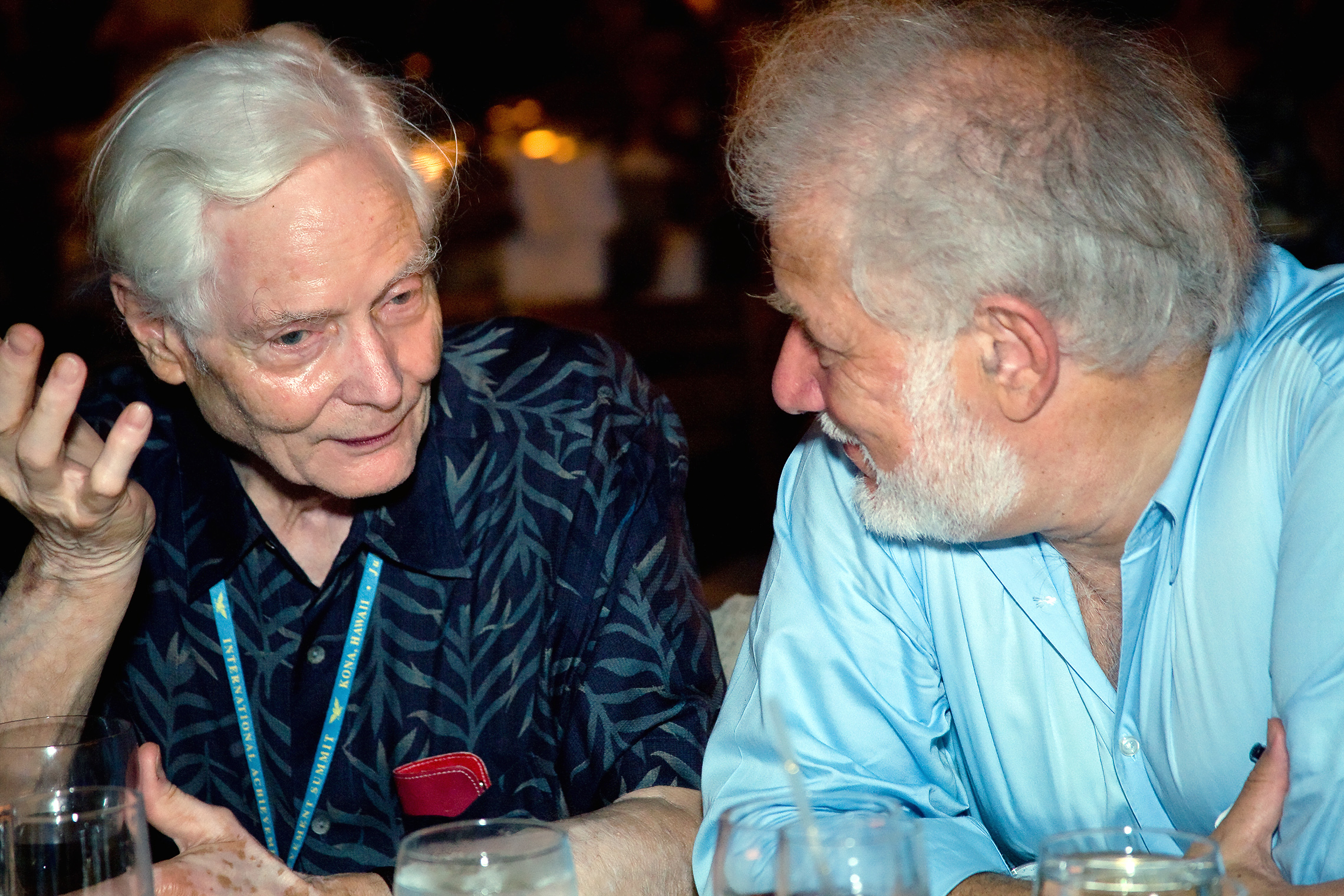
Among the renowned musical artists inducted into the Academy this year were the legendary songwriter and producer Brian Wilson, the young violin virtuoso Joshua Bell, and the world’s leading dramatic soprano, Deborah Voigt. Other luminaries from the arts and entertainment included country music star and bestselling author Naomi Judd; Star Wars and Indiana Jones creator George Lucas, acclaimed cinematographer Janusz Kaminski and actress Sally Field, both recipients of multiple Oscars for their work in motion pictures. The world of sports was admirably represented by basketball legend Bill Russell.
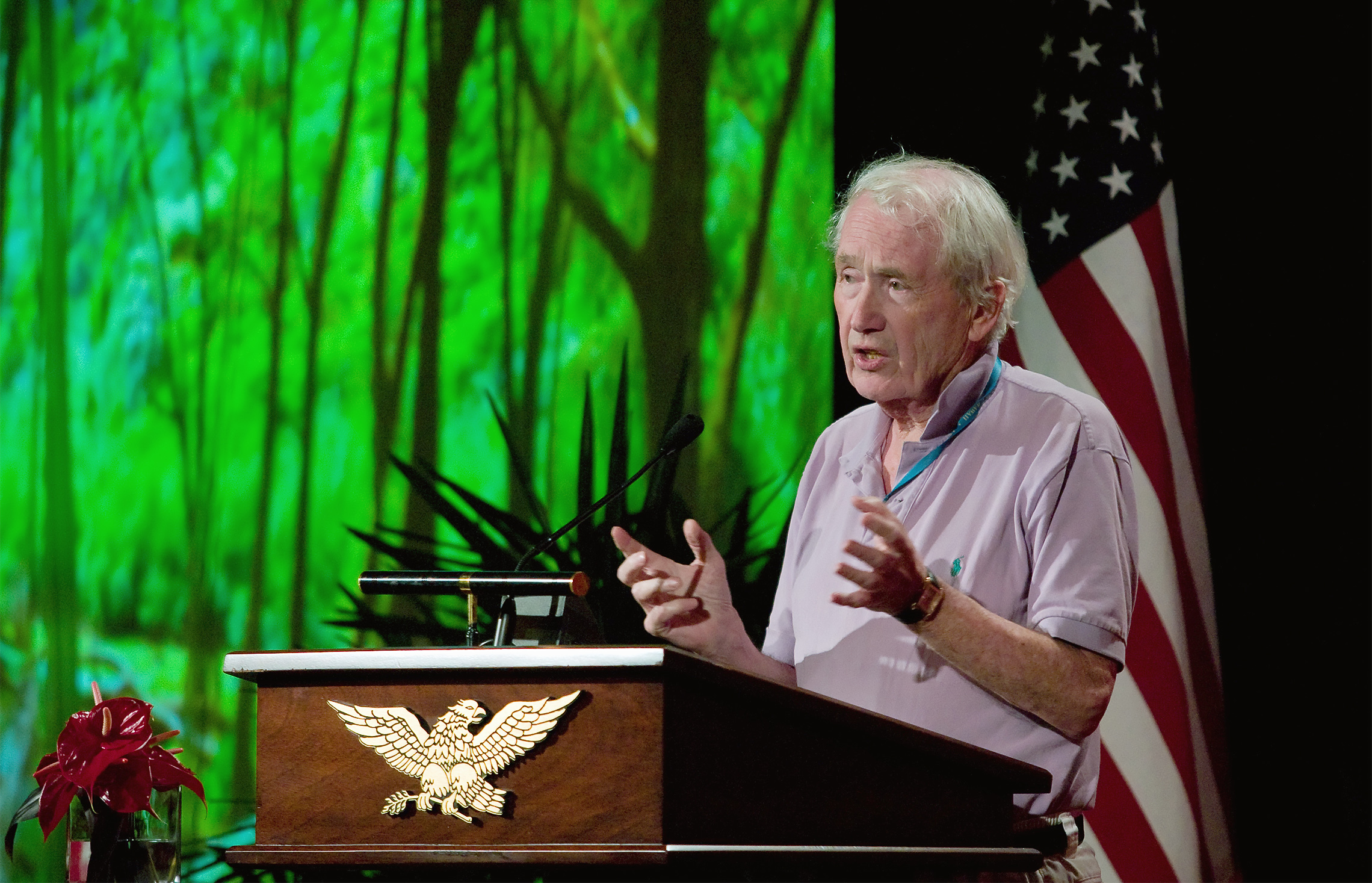
Representatives of the business community included Michael S. Dell, founder of Dell Computers; financier Kenneth E. Griffin, Chairman of the Citadel Group; Stanley Zax, Chairman of Zenith Insurance; and Margery Kraus, CEO of APCO Worldwide. An especially remarkable group of eminent scientists attended the Summit, including Dr. Susan Hockfield, the President of MIT; the Director of the National Institutes of Health, Dr. Elias Zerhouni; the retiring Director of the National Center for Human Genome Research, Dr. Francis S. Collins; the Director of the National Cancer Institute, Dr. Steven Rosenberg; theoretical physicist Lisa Randall; the renowned neurosurgeon Dr. Benjamin S. Carson, and pioneering geneticists Dr. James A. Thomson, Dr. Shinya Yamanaka and Dr. Svante Pääbo.
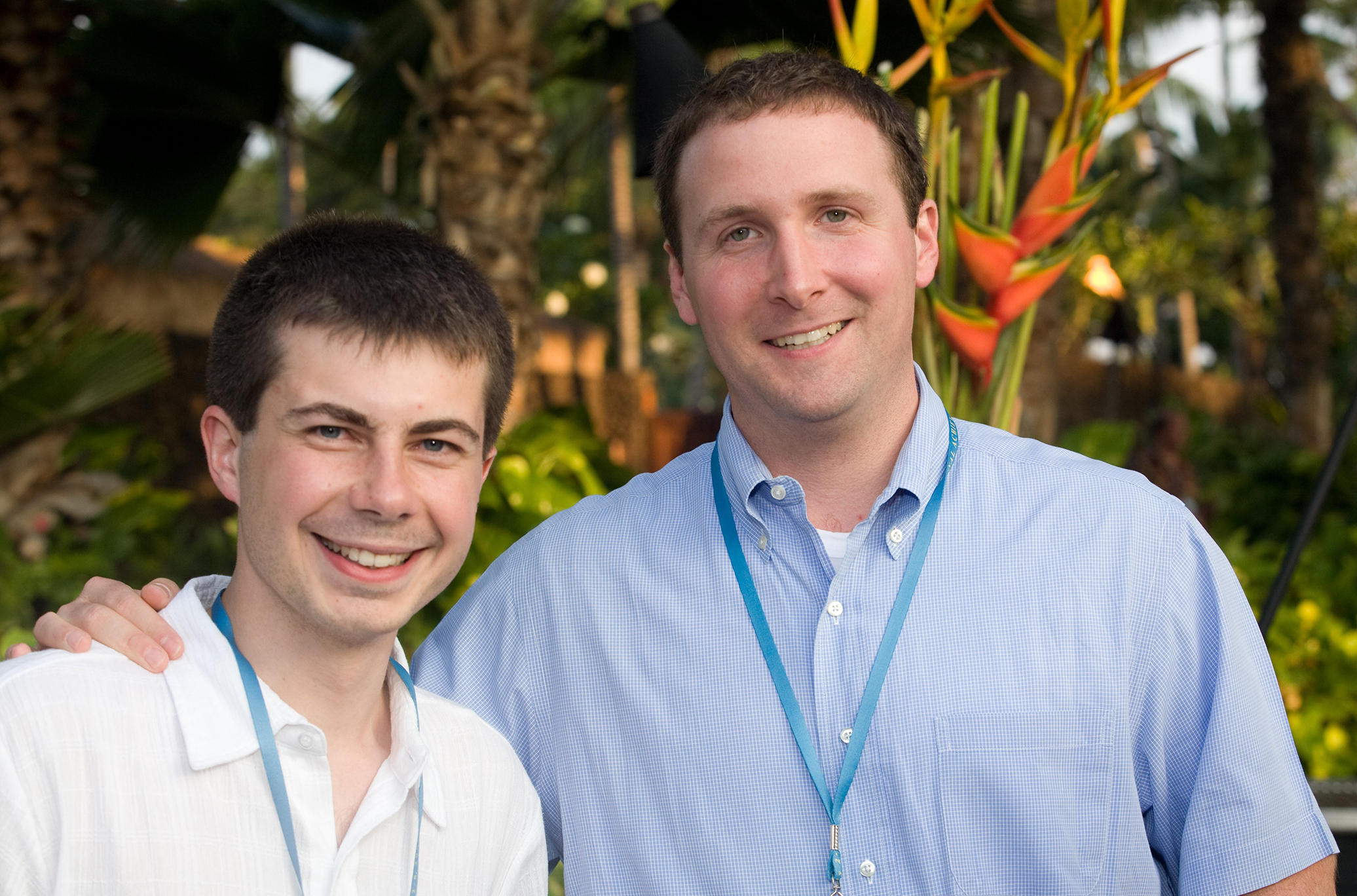
The distinguished marine biologist Dr. Sylvia Earle was joined by another undersea explorer, National Geographic photographer David Doubilet. Other distinguished honorees in attendance included America’s most celebrated defense attorney, Barry Scheck, and the country’s most prominent labor leader, SEIU President Andy Stern.
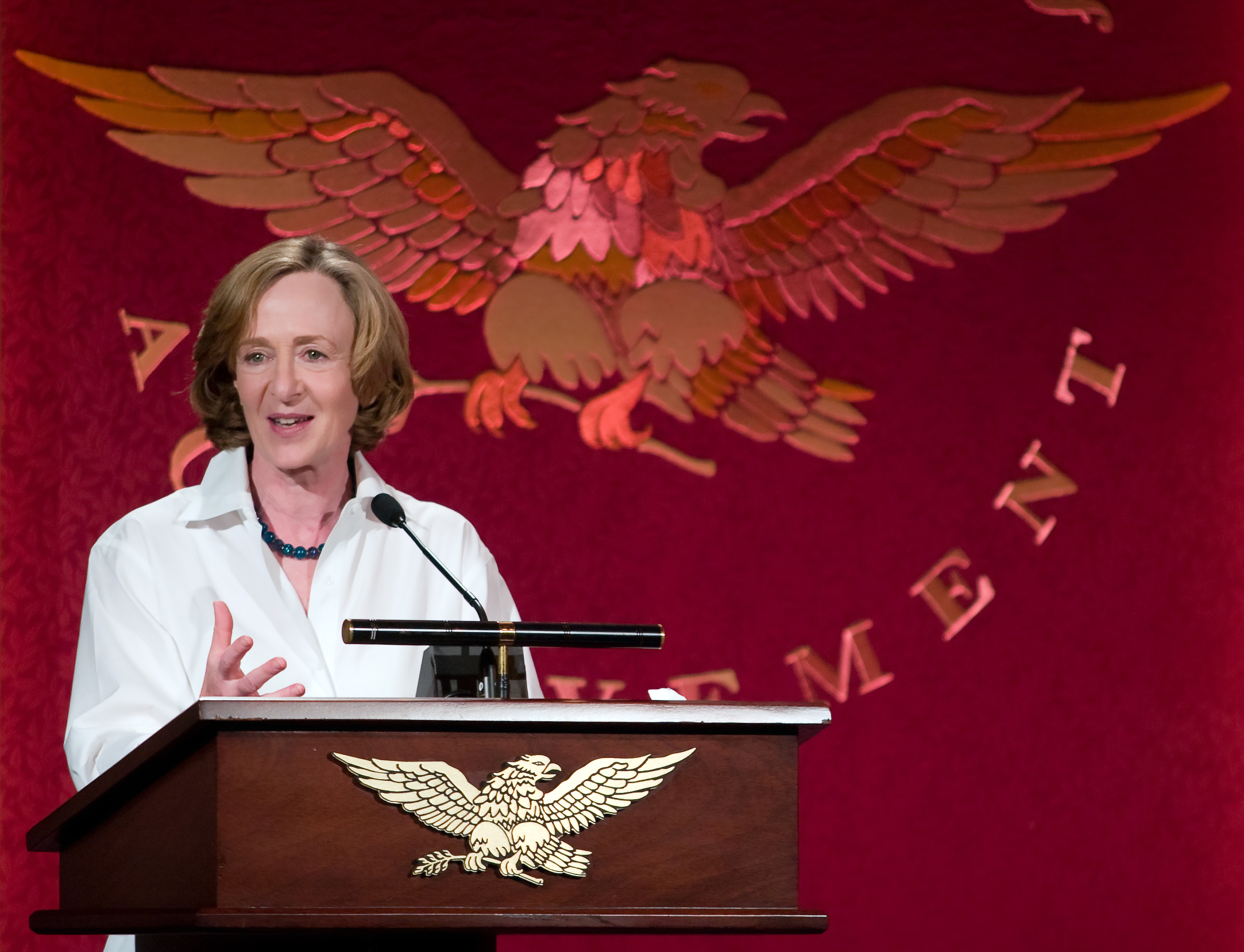
The Host of the 2008 International Achievement Summit was Catherine B. Reynolds, Chairman and CEO of The Catherine B. Reynolds Foundation. This year’s Summit was made possible by a generous grant from The Catherine B. Reynolds Foundation.
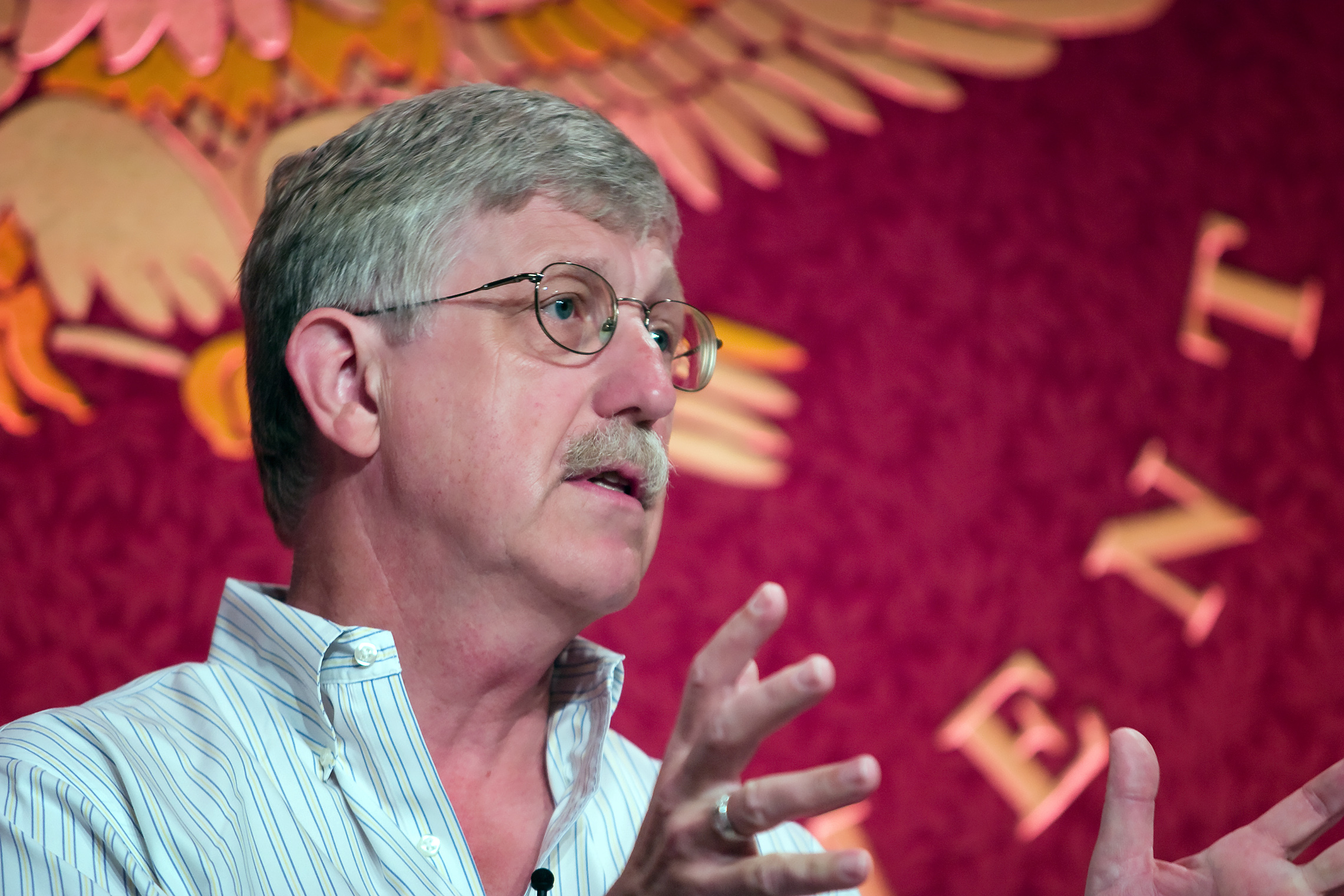
The week’s program began on Wednesday night with a torch-lit luau in the Hoku Theatre, an open-air amphitheater hewn from the island’s black volcanic rock. While feasting on tropical delicacies, the student delegates and Academy members were serenaded with Hawaiian music and treated to a performance of traditional kahiko hula dance. After hearing welcoming remarks from Host Chairman Catherine B. Reynolds and an inspiring address from neurosurgeon Benjamin Carson, the evening ended on a dramatic note with a traditional fire dance, performed by a dozen young Hawaiian men, expertly juggling lit torches from all corners of the amphitheater.
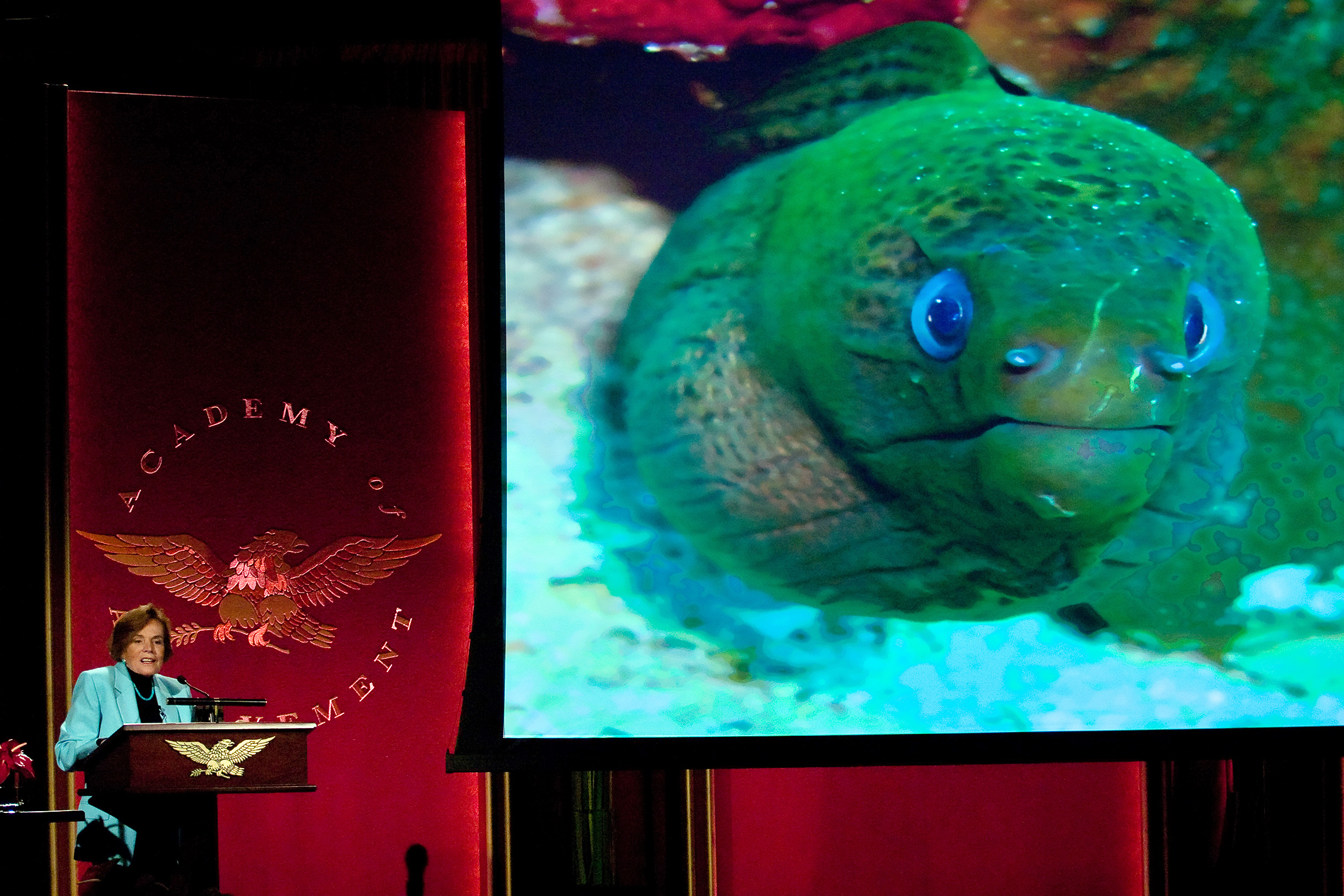
The formal program kicked off Thursday morning in the Hualalai Ballroom with an address by financier Kenneth E. Griffin of the Citadel Group. Sometimes portrayed in the press as reserved and introverted, Griffin proved to be a dynamic and charismatic speaker, eager to relate his experiences as a young entrepreneur. He engaged in a lively question-and-answer session with the Academy’s student delegates, and delayed his planned departure to participate in further discussion with the Academy’s students.
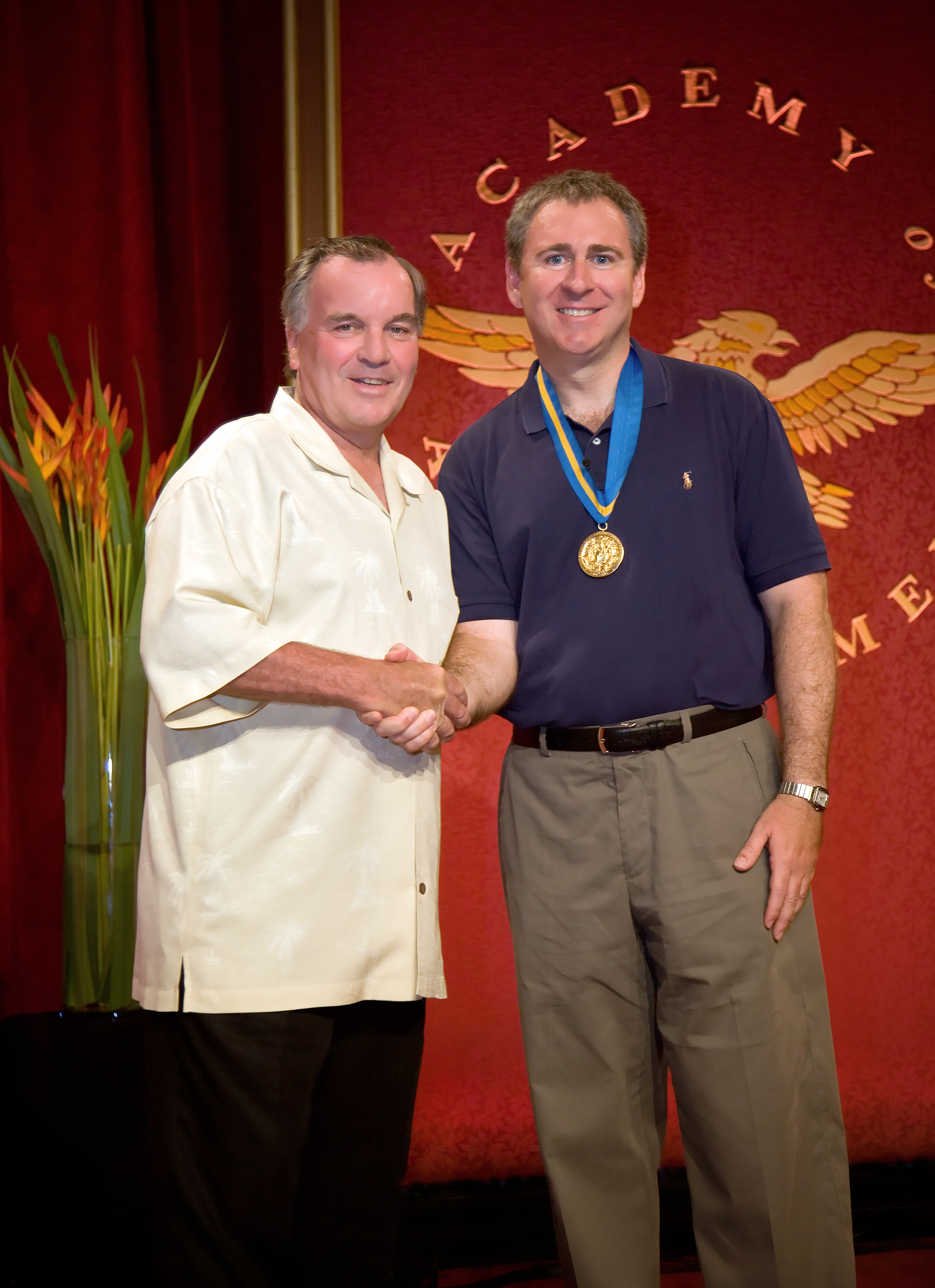
The celebrated undersea explorer Sylvia Earle gave an impassioned speech, warning of the effects of human activity on the marine ecosystem. The photographer David Doubilet followed with a breathtaking presentation of his brilliantly colored images of the world beneath the waves. Congressman Edward Markey then joined the two explorers for an intense discussion of environmental issues with the student delegates.
Legendary country singer Naomi Judd gave an extremely moving account of her early struggles as a teenage single mother, fighting her way from welfare to ultimate success in the music industry. She was followed by Frank McCourt, author of Angela’s Ashes and Teacher Man, who took his own impoverished childhood and long years spent teaching in the New York City public school system as the starting point for a delightfully digressive series of reflections on — among other things — the value of digression itself. The morning’s program ended with a stirring presentation by the great American poet W.S. Merwin, long a resident of Hawaii, who exhorted the student delegates to pursue their individual aspirations without fear of the collective judgments of society.
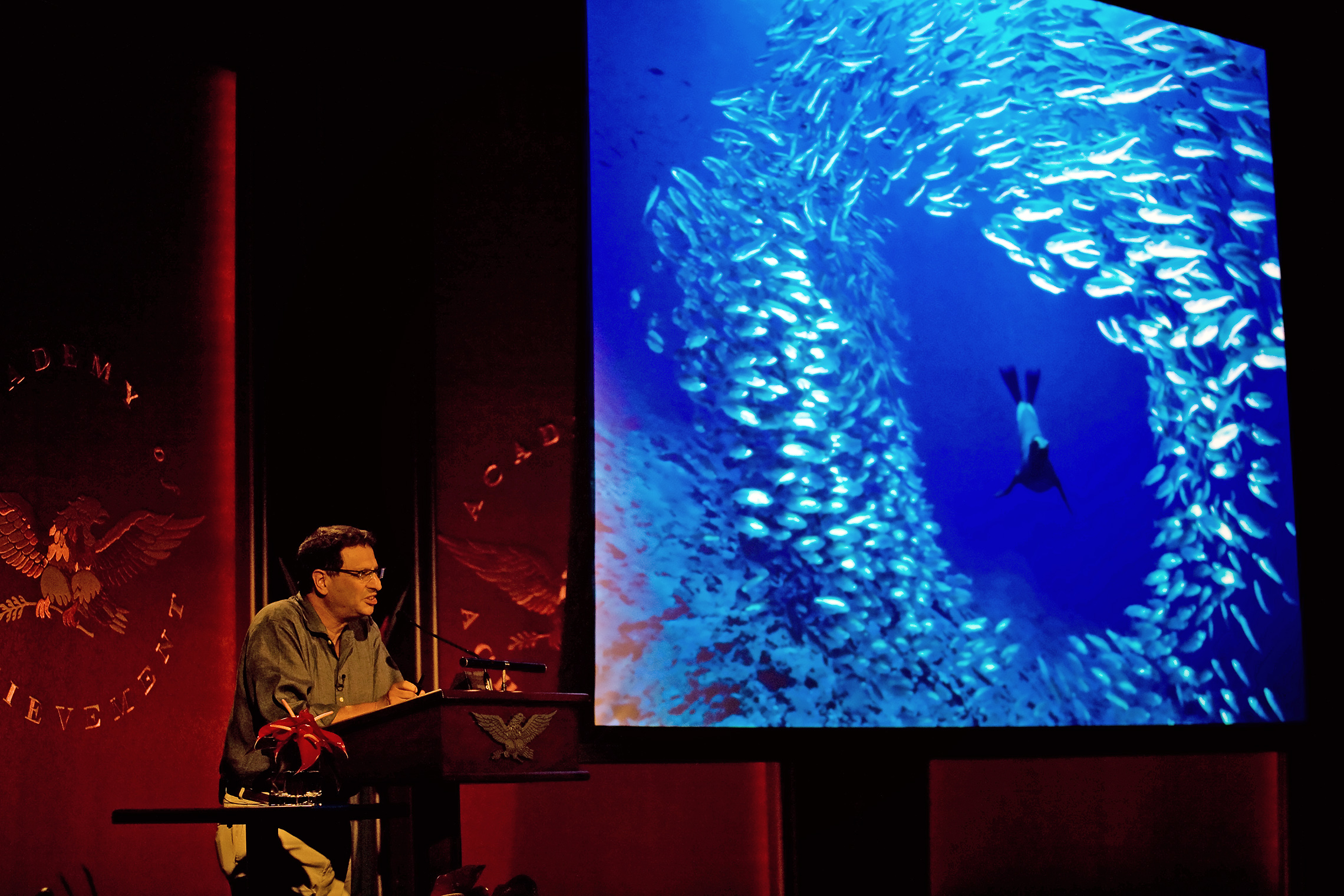
After a leisurely luncheon by the sea, student delegates and Academy members returned to the Hualalai Ballroom for an in-depth presentation by Michael S. Dell, who recounted how he founded Dell Computers as a freshman at the University of Texas. From the remarks of this visionary entrepreneur, the discussion moved to the often troubled relationship between government and business. Two noted critics of corporate power, Ralph Nader and author Naomi Klein, joined in a heated debate with financier Kenneth Griffin, a passionate advocate for the rights of business. The exchange of ideas was intense and uninhibited as the student delegates pressed both sides to defend their positions in detail.
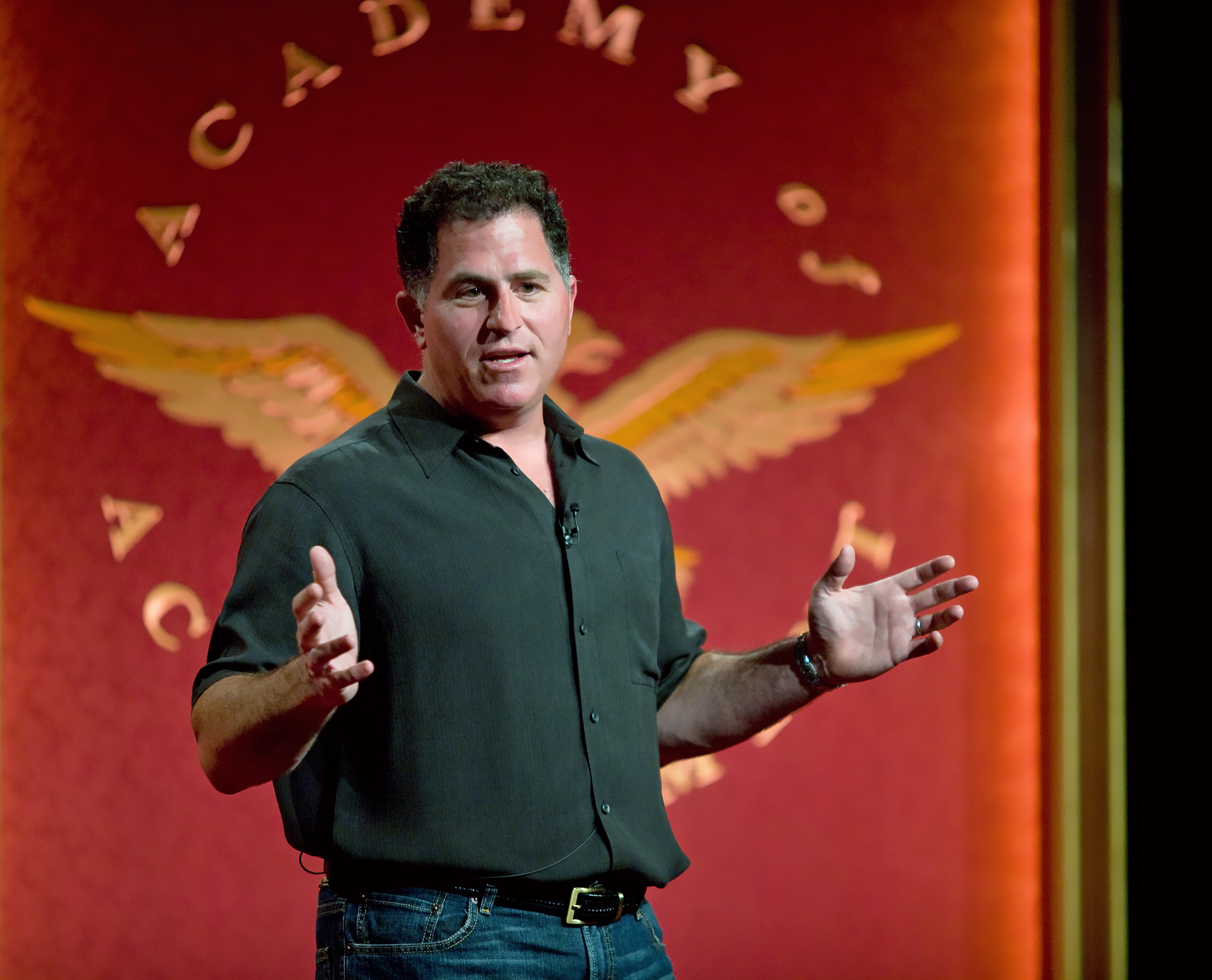
The afternoon ended with an individual presentation by A. Scott Berg, recipient of the Pulitzer Prize for his biography of aviator Charles Lindbergh. Berg recalled the inspiring lives he has chronicled in his work, including those of motion picture pioneer Samuel Goldwyn and President Woodrow Wilson. He recalled Lindbergh’s love of Hawaii, and his dedication to the preservation of the islands’ environment.
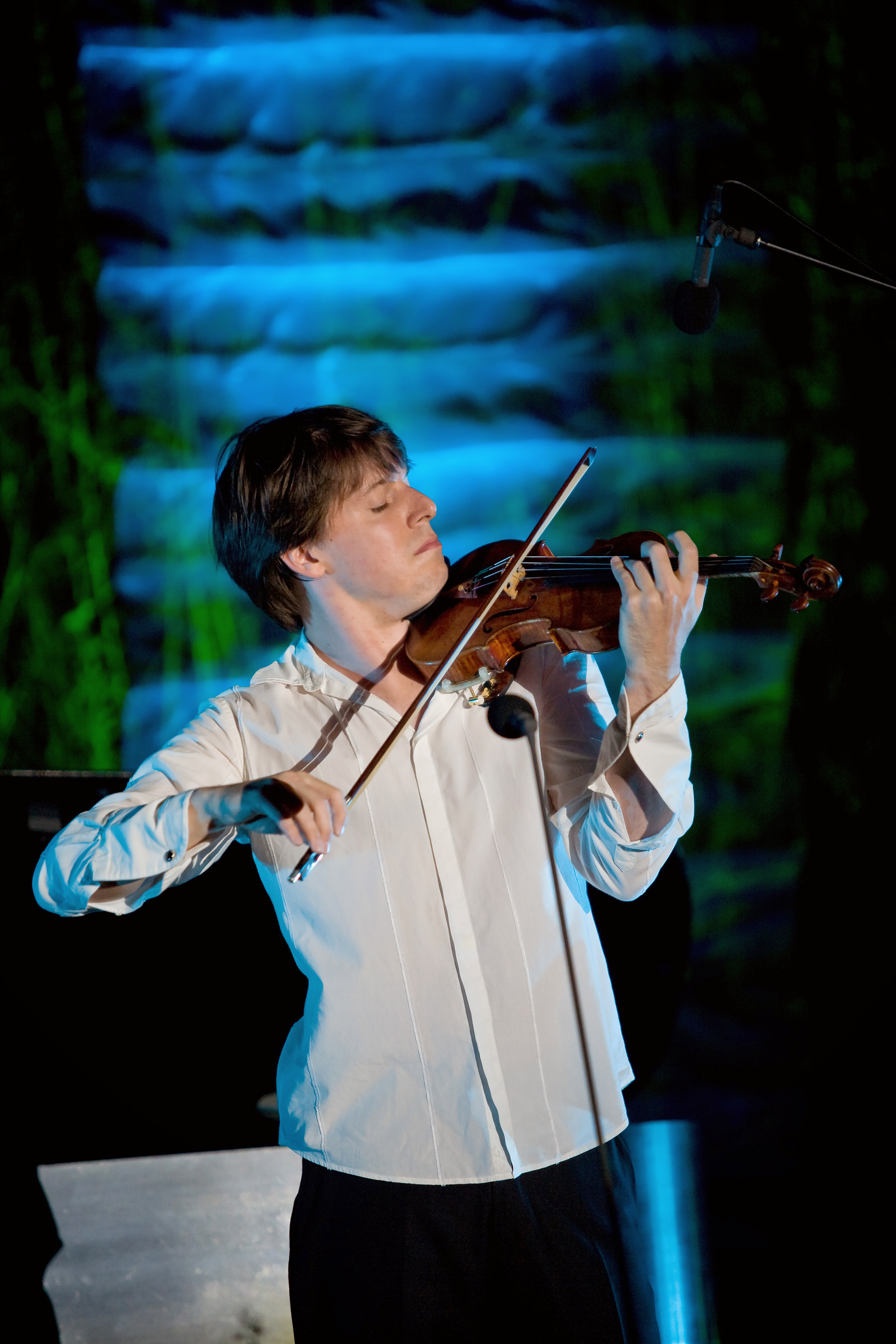
In the evening, student delegates and Academy members enjoyed another dinner under the stars, followed by spine-tingling performances from violin virtuoso Joshua Bell and opera star Deborah Voigt. Far from the stereotype of classical musicians and opera singers as temperamental or aloof, both Bell and Voigt proved to be highly personable, approachable participants in the Summit’s activities, as well as being consummate musical artists. Later that evening, the assembly migrated to the beach, where clear skies, a trained astronomer, and a powerful telescope afforded the Summit participants an exceptional view of the stars and planets.
Thursday morning began with a presentation by Professor Jonathan Spence of Yale University, a delightfully urbane speaker who charmed the audience with an account of the course that led him from his youth and education in Great Britain to teaching Chinese history in the United States. His research has resulted in a series of bestselling books and made him a sought-after lecturer in China as well as the West. He was followed by Professor Lisa Randall of Harvard, who first attended the Academy of Achievement as a teenage student delegate in 1980. She returned this year as an honoree, giving an inventive visual presentation of her fascinating theory of hidden dimensions. Randall’s conjecture, now being tested by NASA and the European Center for Nuclear Research, may provide the long-sought explanation of the relationship of gravity to the other fundamental forces. Randall was followed by another distinguished scientist, the neurologist Susan Hockfield, President of the Massachusetts Institute of Technology.
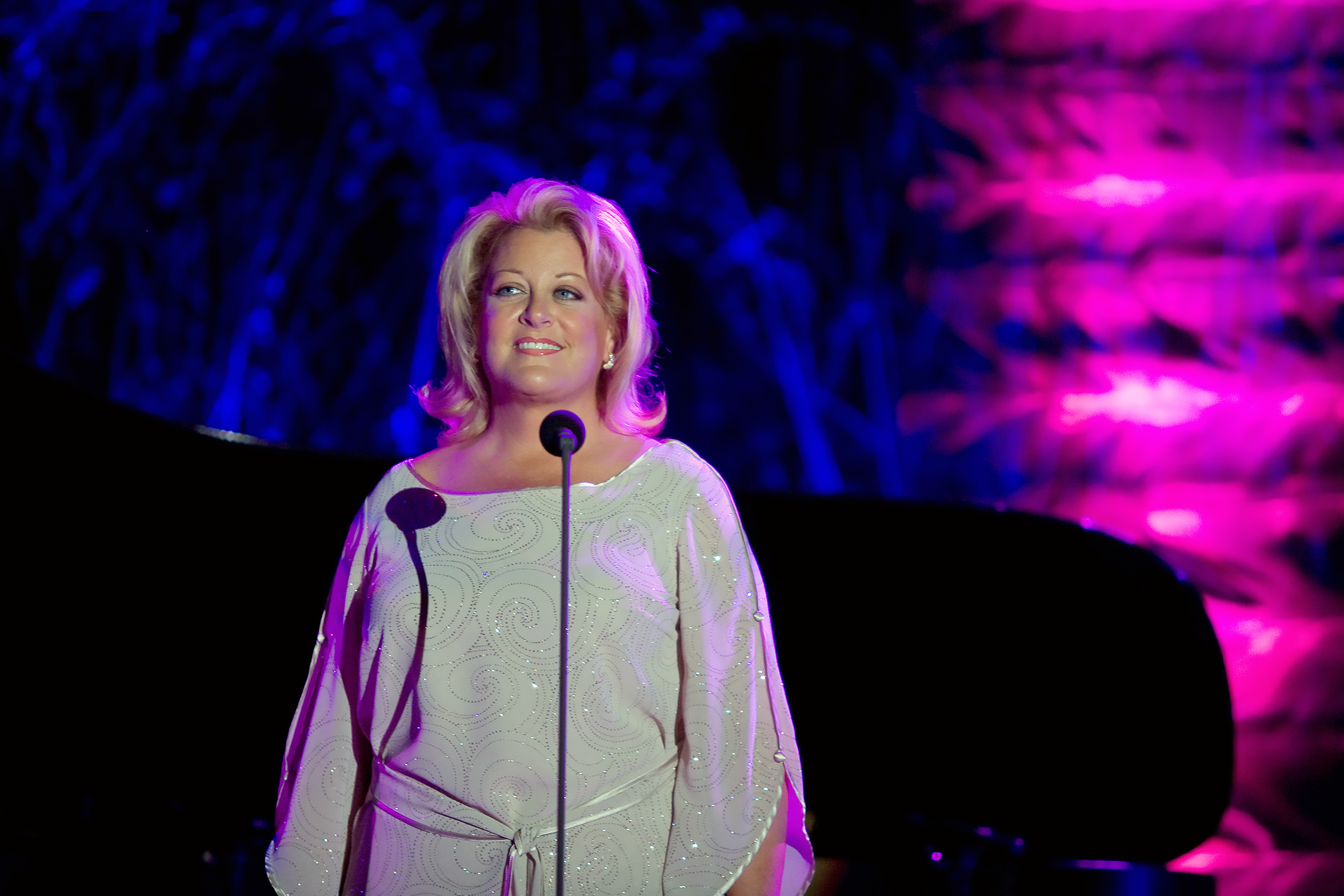
The first panel discussion of the day addressed the challenges facing the modern city. The panel featured Mayors Richard M. Daley of Chicago and Antonio Villaraigosa of Los Angeles, as well as former Mayor Willie L. Brown, Jr. of San Francisco. The three mayors were joined by a distinguished educator and public servant, Professor David R. Gergen, former advisor to four U.S. presidents and now Director of the Center for Public Leadership at Harvard’s Kennedy School.
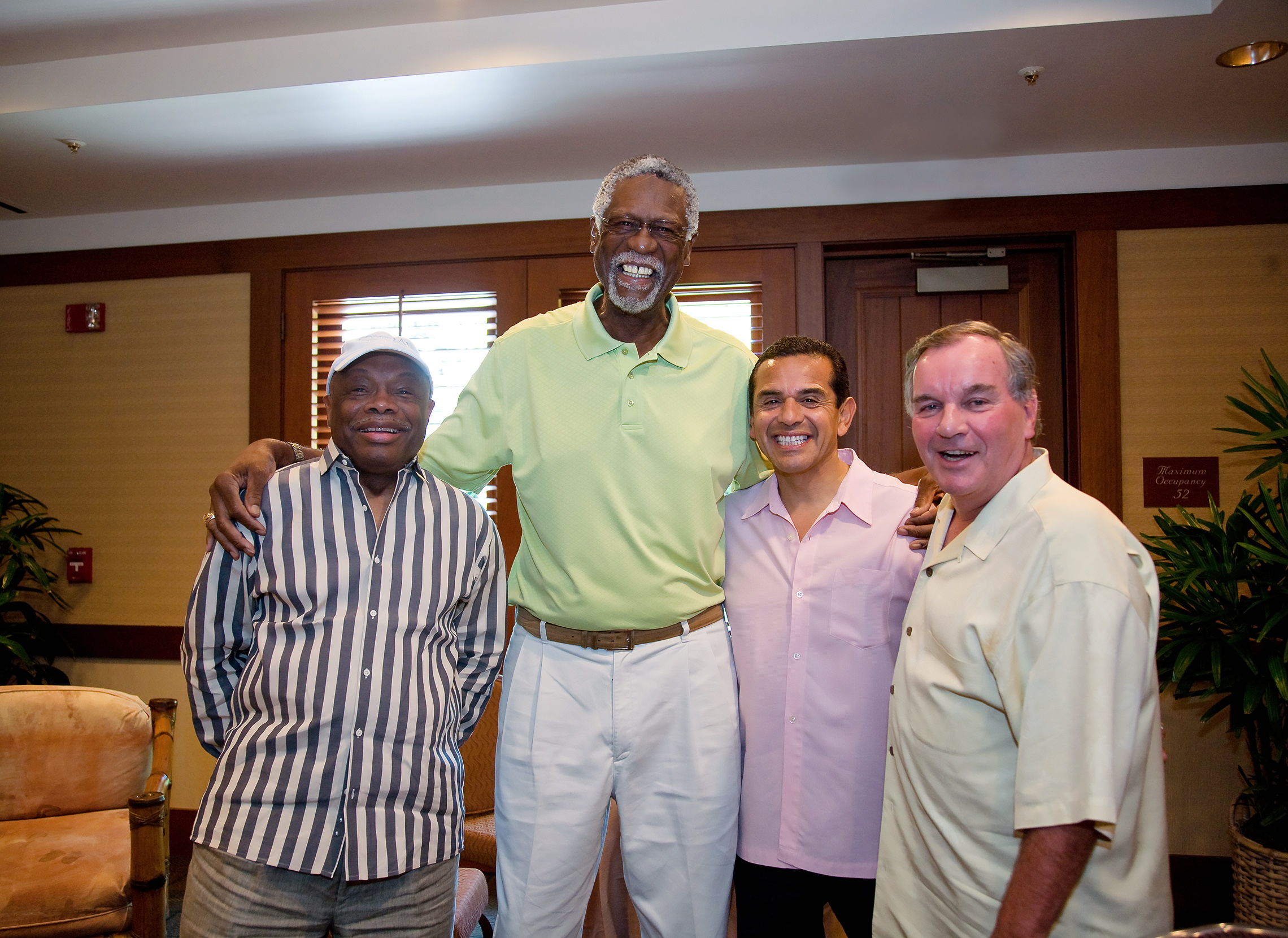
New York Times columnist Nicholas Kristof made an individual presentation, recounting his travels through the world’s conflict zones, and his difficult effort to free two young women from slavery in Cambodia. Defense attorney Barry Scheck of the Innocence Project detailed his long struggle to establish standards for the admission of DNA evidence in American courts. To date, Scheck’s efforts have secured the release of over 200 men wrongly imprisoned for crimes they did not commit. The Swedish geneticist Svante Pääbo made a fascinating presentation of his work, comparing the genomes of the human being and the chimpanzee. He also gave a thrilling preview of his current project, sequencing the genome of a forerunner of modern humans, using DNA retrieved from the remains of a 42,000-year-old Neanderthal man.
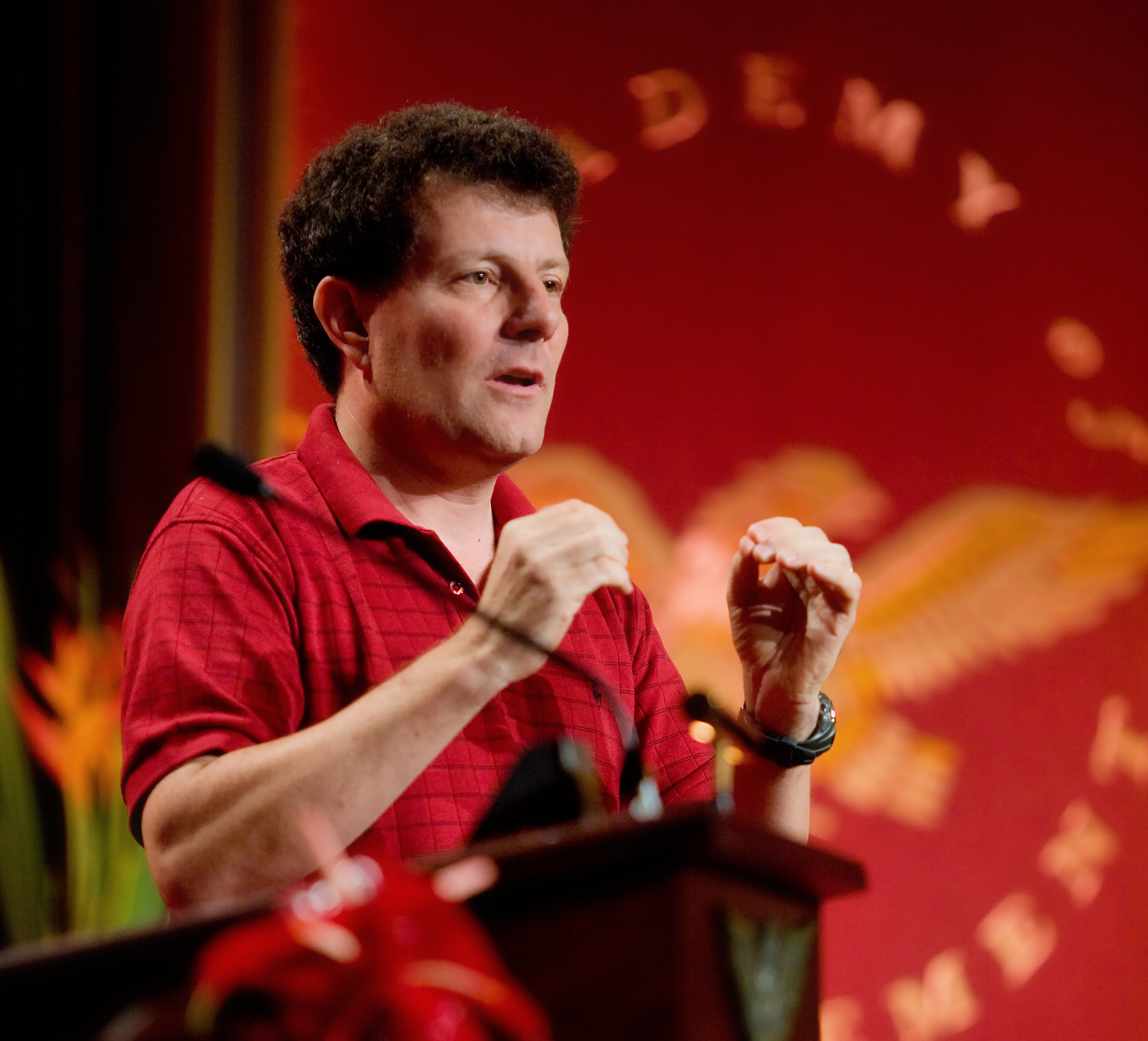
The afternoon session ended with a captivating address from an authentic American hero, basketball great Bill Russell. The Hall of Famer — captain and later coach of the Boston Celtics during their unsurpassed reign as national champions — spoke less of his accomplishments on the basketball court than of his achievements as a father. The champion radiated integrity and a soft-spoken dignity, deeply touching the hearts of his longtime fans among Academy members, as well as those of the student delegates, many of them too young to recall his brilliance on the basketball court. The afternoon session began with a thrilling exhibition of the artistry of cinematographer Janusz Kaminski. Scenes from Schindler’s List, Saving Private Ryan, Munich, The Diving Bell and the Butterfly, and this year’s blockbuster, Indiana Jones and the Kingdom of the Crystal Skull, gave an overview of the extraordinary range and power of Kaminski’s work. Following his presentation, student delegates rushed to the microphones to ply him with questions about the techniques and inspirations behind his imagery, as well as the details of his working relationship with his frequent collaborator, Steven Spielberg.
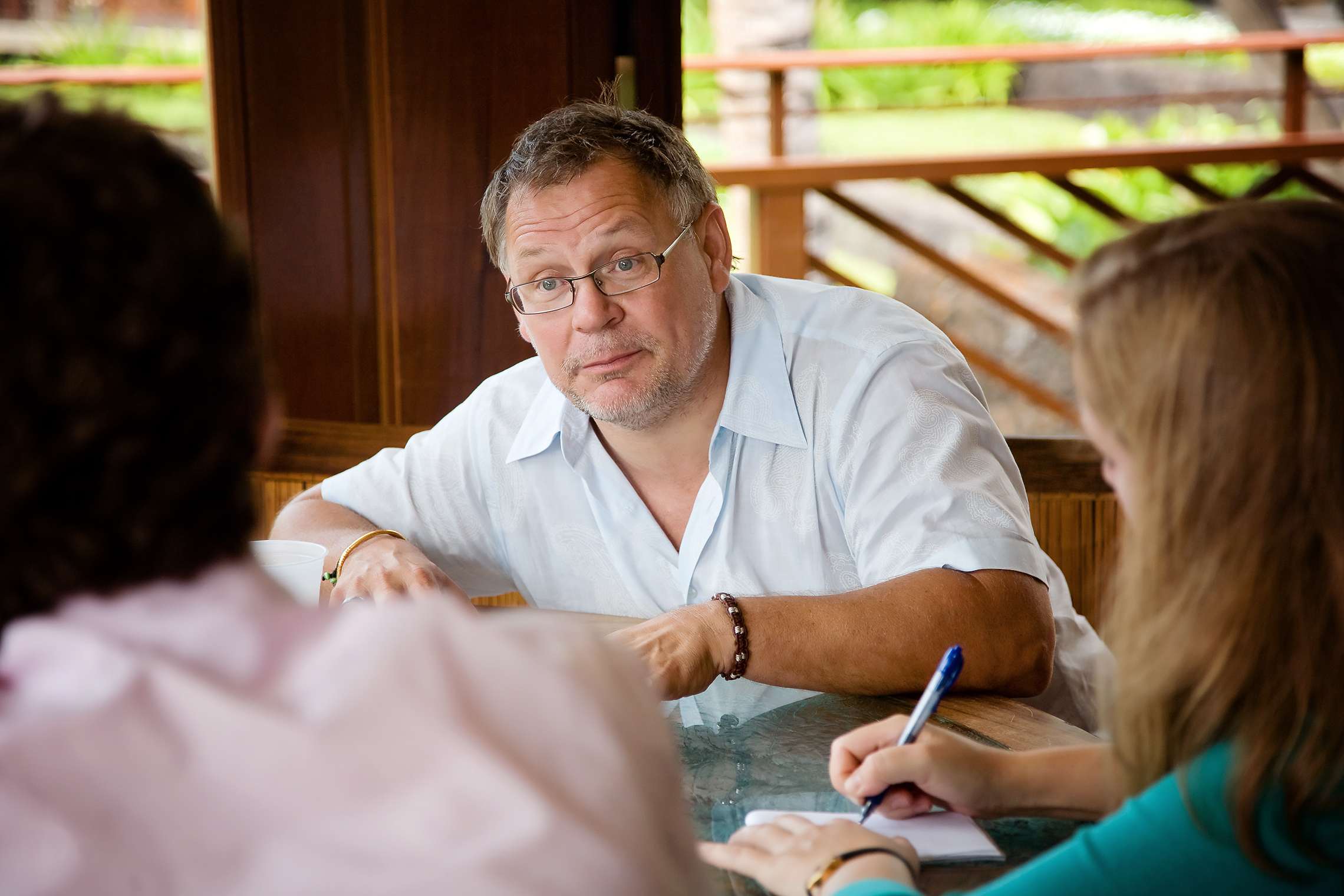
From the onscreen action of Saving Private Ryan and Indiana Jones, the conversation turned to the real-life heroics of U.S. fighting men in wars past and present, in a talk with Rick Atkinson, recipient of four Pulitzer Prizes as journalist and historian. Atkinson touched on his experiences as a war correspondent in Iraq, as well as his multi-volume history of the European front in World War II.
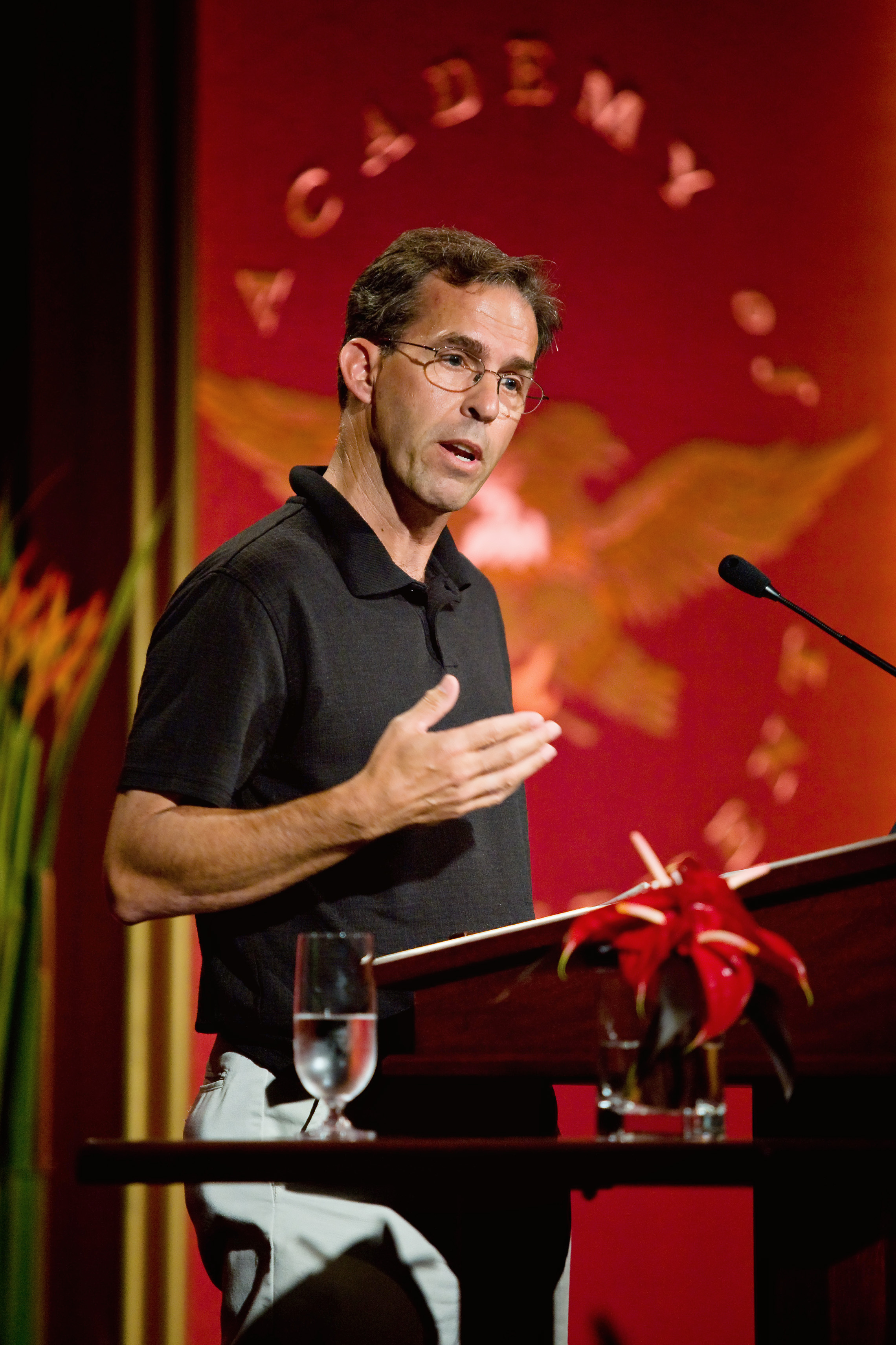
Journalist and author Naomi Klein, who had made a powerful impression in the panel discussion of business and government, returned for a solo address. The author of The Shock Doctrine: The Rise of Disaster Capitalism, she outlined a provocative thesis of the relationship of emergency situations — wars and natural disasters — to the privatization of public assets in countries around the world. A writer of another kind spoke next — poet and novelist Michael Ondaatje, author of the international bestseller The English Patient, among other works. Born in Sri Lanka, and now a citizen of Canada, Ondaatje has taught at a number of universities in the United States, including the University of Hawaii.
Next to take the stage was the actress Sally Field, recipient of two Best Actress Oscars for her performances in Norma Rae and Places in the Heart. Field spoke at length of her long struggle to establish herself as a serious dramatic actress after winning early fame in television comedies, and of the values of honesty and self-knowledge the discipline of acting has brought to the rest of her life. She was followed by filmmaker George Lucas, fresh from the success of his summer blockbuster, Indiana Jones and the Kingdom of the Crystal Skull. Lucas wrote the film’s original story and served as Executive Producer, while direction and photography were supplied by his friends Steven Spielberg and 2008 honoree Janusz Kaminski. Lucas spoke of his early setbacks, trying to find his way as an outsider in Hollywood’s studio system before finding success on his own terms.
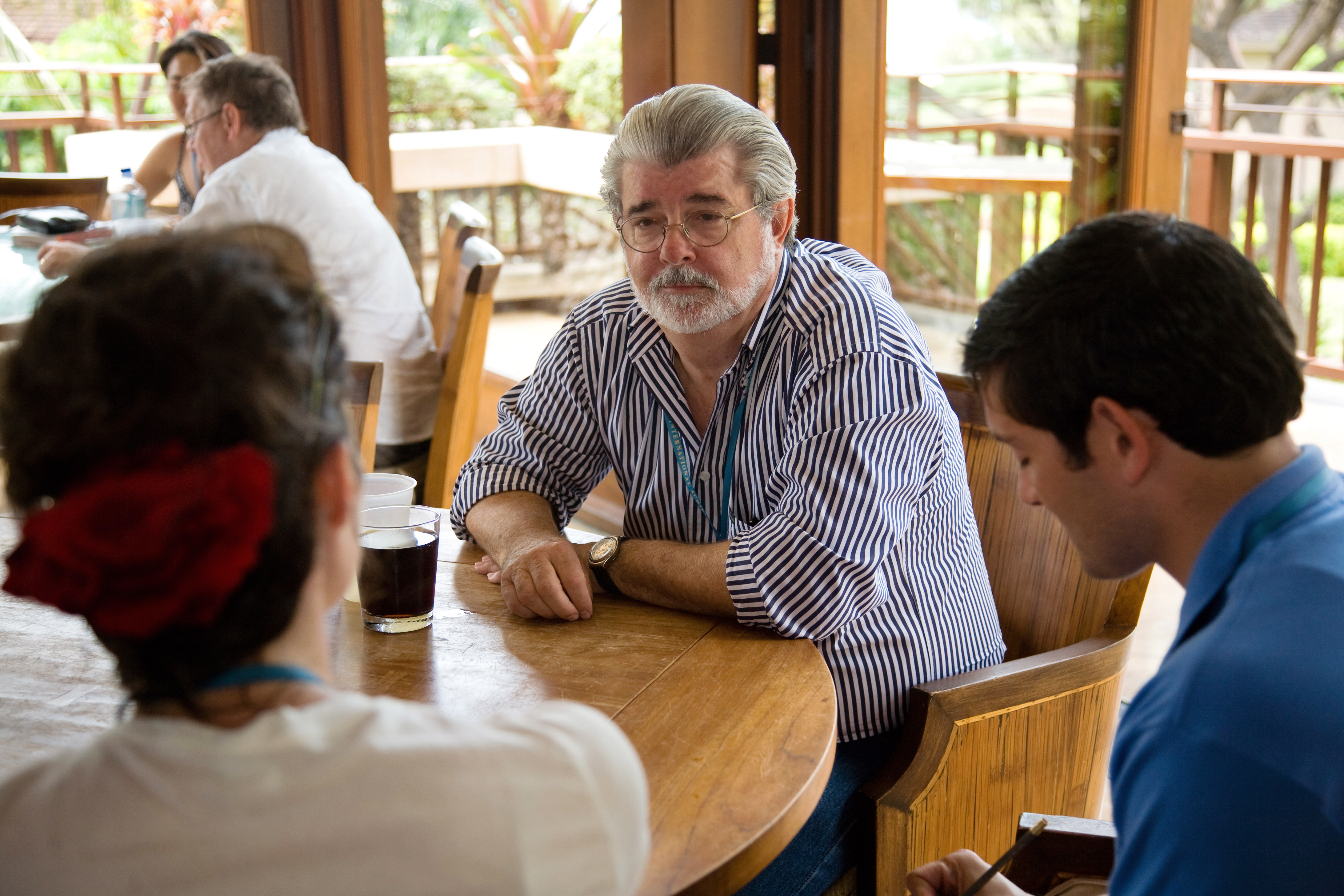
The afternoon closed with an exciting panel discussion of the challenges facing modern Africa, led by veteran ABC News correspondent Sam Donaldson. The participants included: journalist Nicholas Kristof, who has reported extensively from Africa; Archbishop Desmond Tutu, a hero of the struggle for racial equality and democracy in South Africa; and the President of Liberia, Her Excellency Ellen Johnson Sirleaf. President Johnson Sirleaf, recently awarded a Presidential Medal of Freedom in the United States, is the first woman to serve as the elected leader of an African nation. She won the presidency after a 25-year campaign to restore democracy in Liberia following a tragic era of dictatorship and civil strife. Dressed in the traditional Liberian manner, President Johnson Sirleaf won over the audience with the purity of her convictions, and with the down-to-earth pragmatism that has enabled her to act on them.
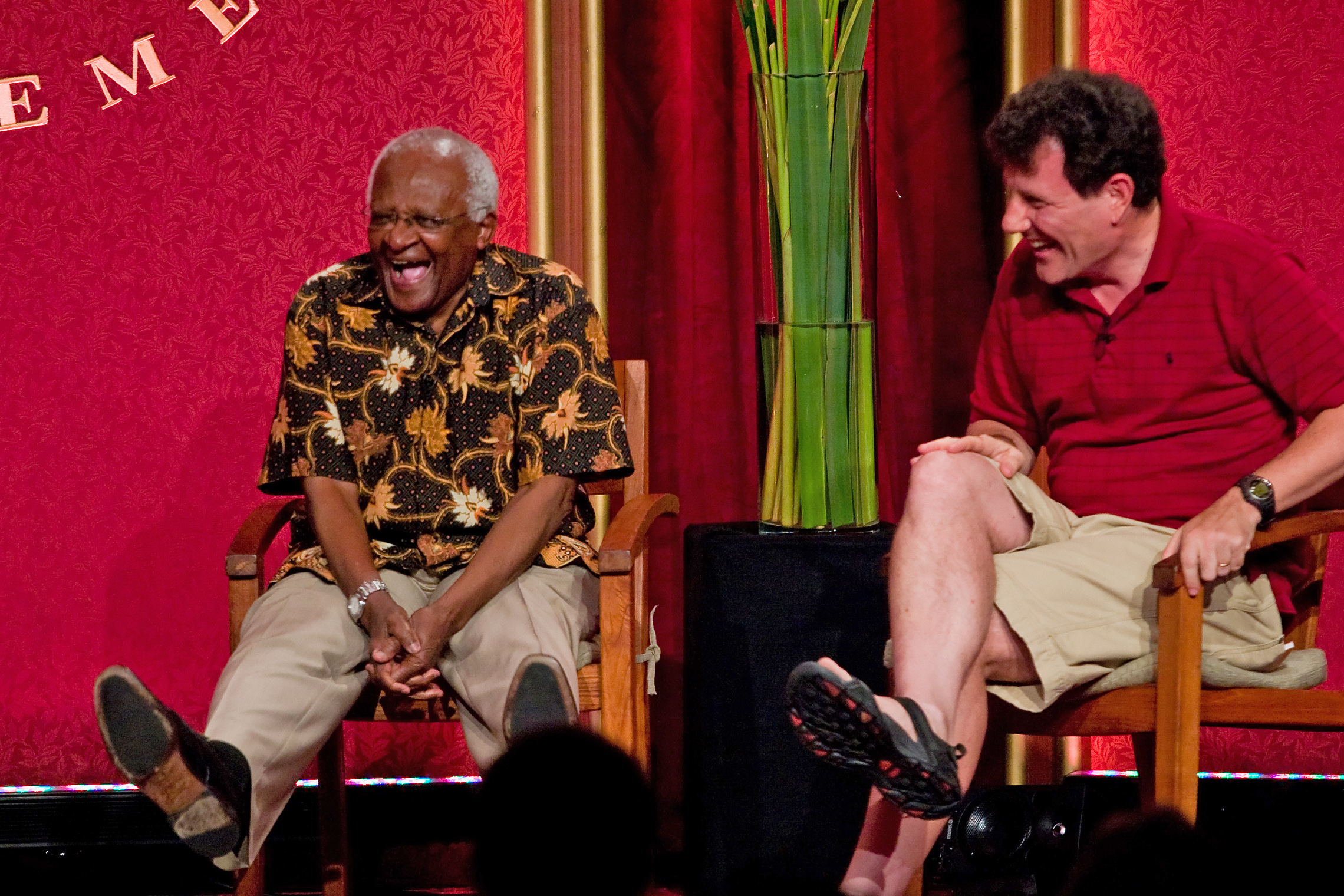
The day ended with a Fourth of July celebration on the beach — a magnificent dinner followed by a surprise performance from Academy member Chuck Berry. The student delegates cheered with delight as the Father of Rock and Roll mounted the seaside stage, placed for the occasion on a gleaming white sand dune, framed by a beautiful Hawaiian sunset. Still vigorous and mischievous in his 80s, Berry tore his way through some of his signature hits, “Roll Over Beethoven,” “Round and Round,” and “Rock and Roll Music.”
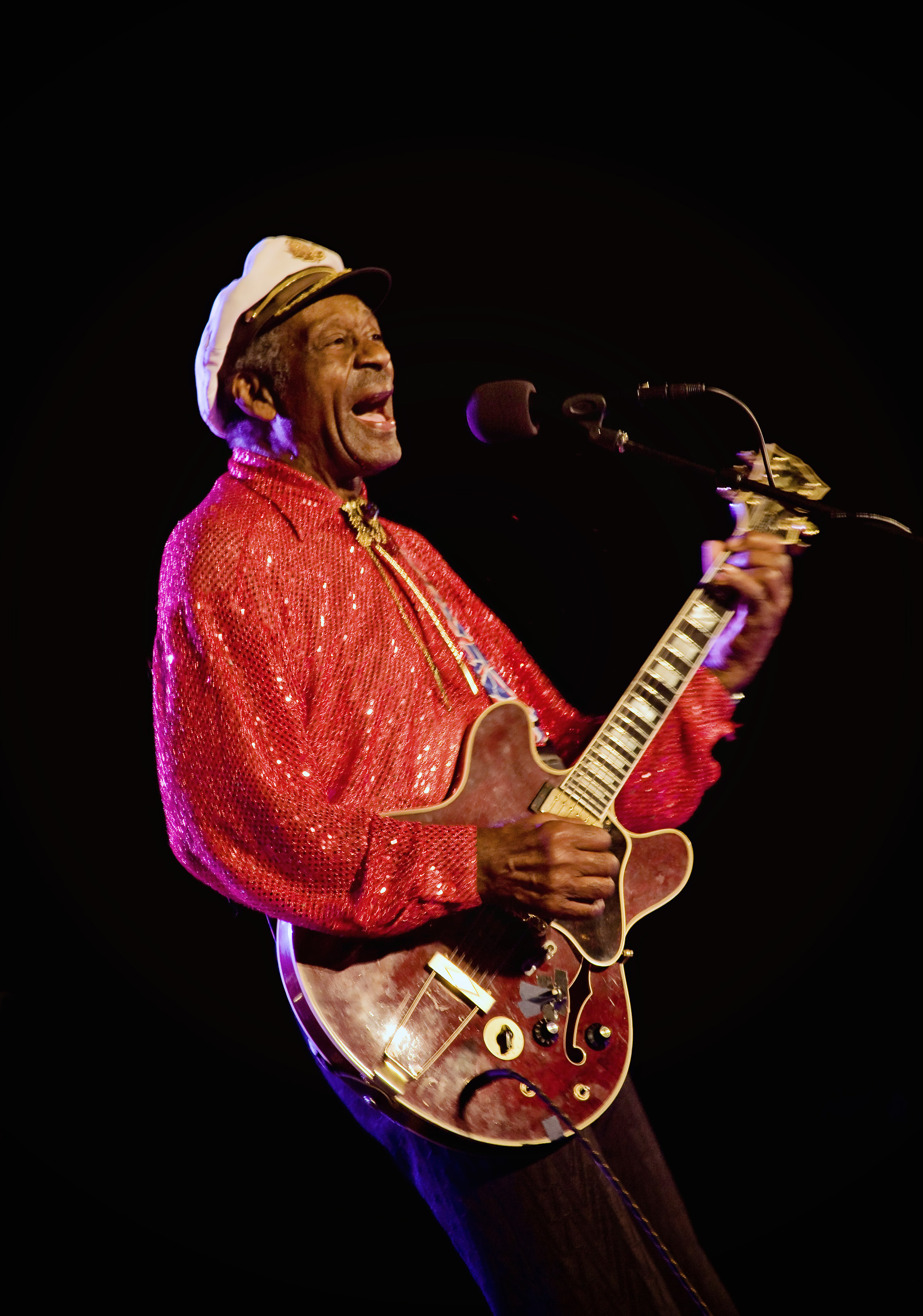
Academy members and student delegates soon crowded the illuminated dance floor, twisting and twirling to the original rock classics, played by the man who wrote them and first made them famous. Rolling Stone magazine has recently named Berry’s tune “Johnny B. Goode” the “Greatest Guitar Song of All Time.” When Berry and the band ripped into this number, the crowd overflowed onto the stage, and the bandstand was soon jammed with gleeful dancers.
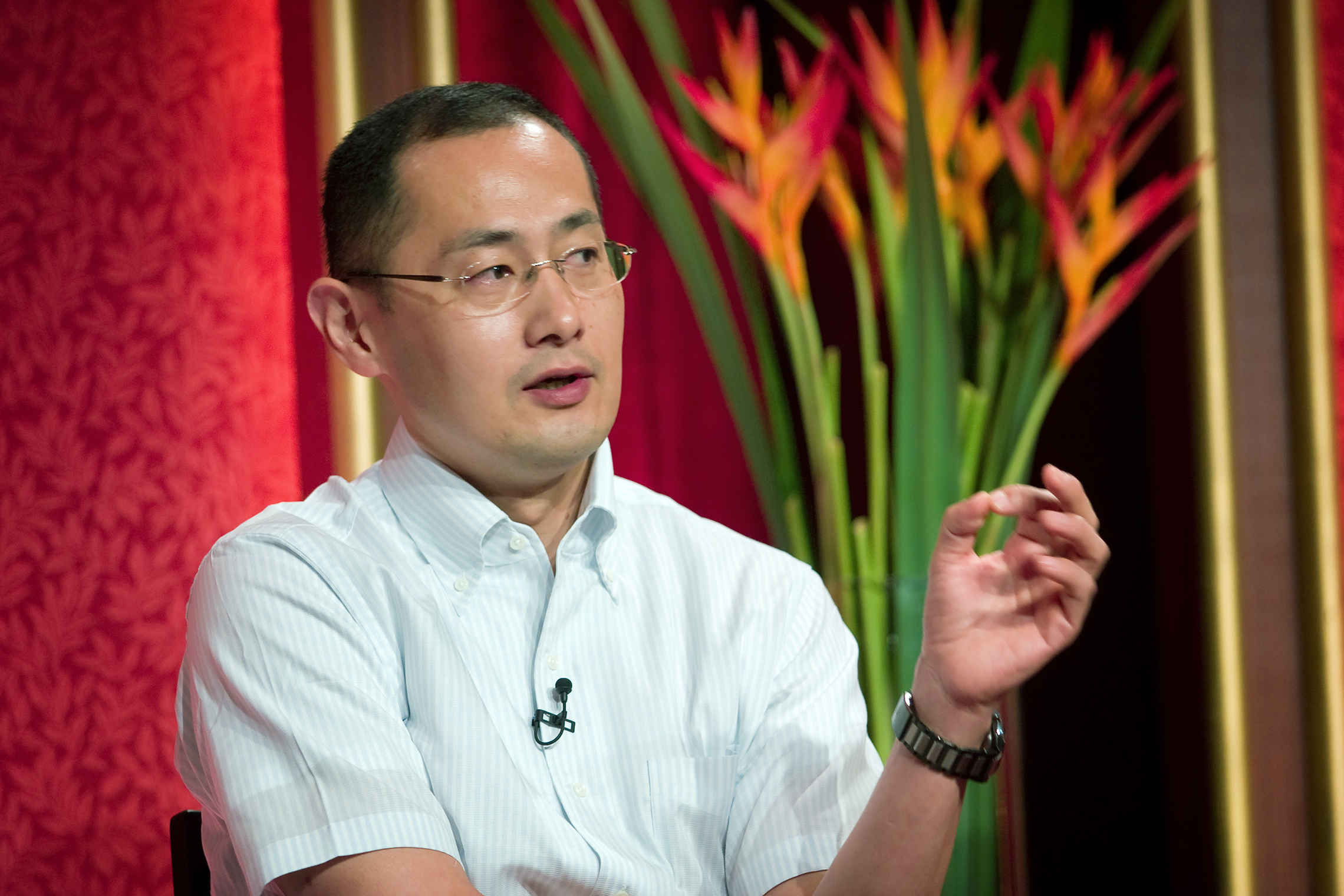
Just as the song reached a furiously rocking climax, spectacular fireworks erupted over the sea, lighting the sky with brilliant colors. When Chuck Berry finally left the stage, to a well-deserved ovation, the patriotic strains of John Philip Sousa’s “Stars and Stripes Forever” filled the air, and a marching line, led by Frank McCourt and Sally Field, jubilantly circled the stage. For visitors to the United States, the occasion provided an incomparable insight into the irrepressible American spirit; for U.S. citizens, it was as glorious a Fourth of July as one could ever hope to see.
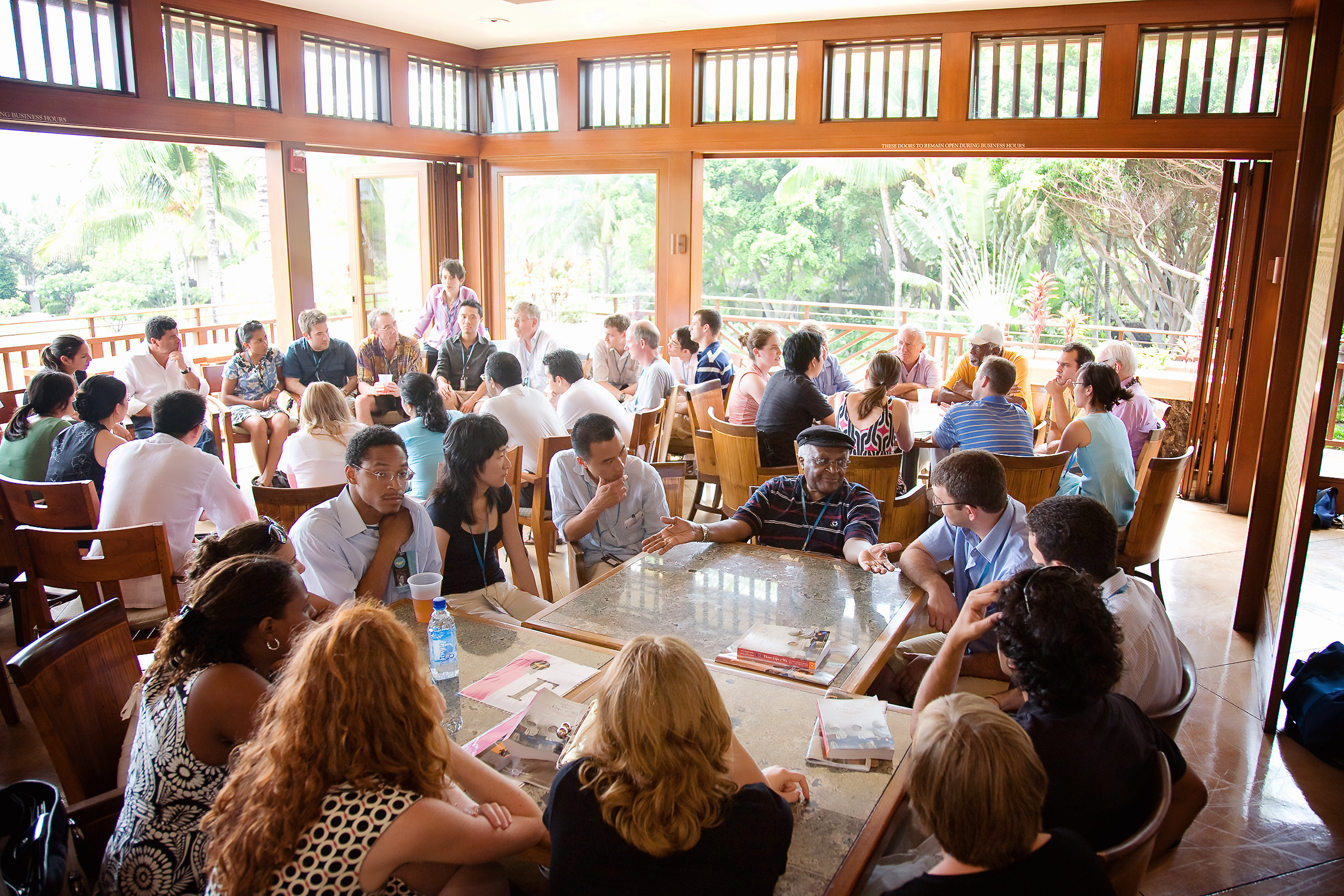
The final morning of the Summit opened with a fascinating presentation by the Nobel Prize economist A. Michael Spence, an engaging speaker who expertly illustrated his remarks on developing countries and the global economy with a series of vivid charts and diagrams. The author of the international bestseller The Kite Runner, Khaled Hosseini, reflected on the journey that led him from his homeland of Afghanistan to exile in the United States, through the process of learning a new language in his teens and becoming a doctor and an author.
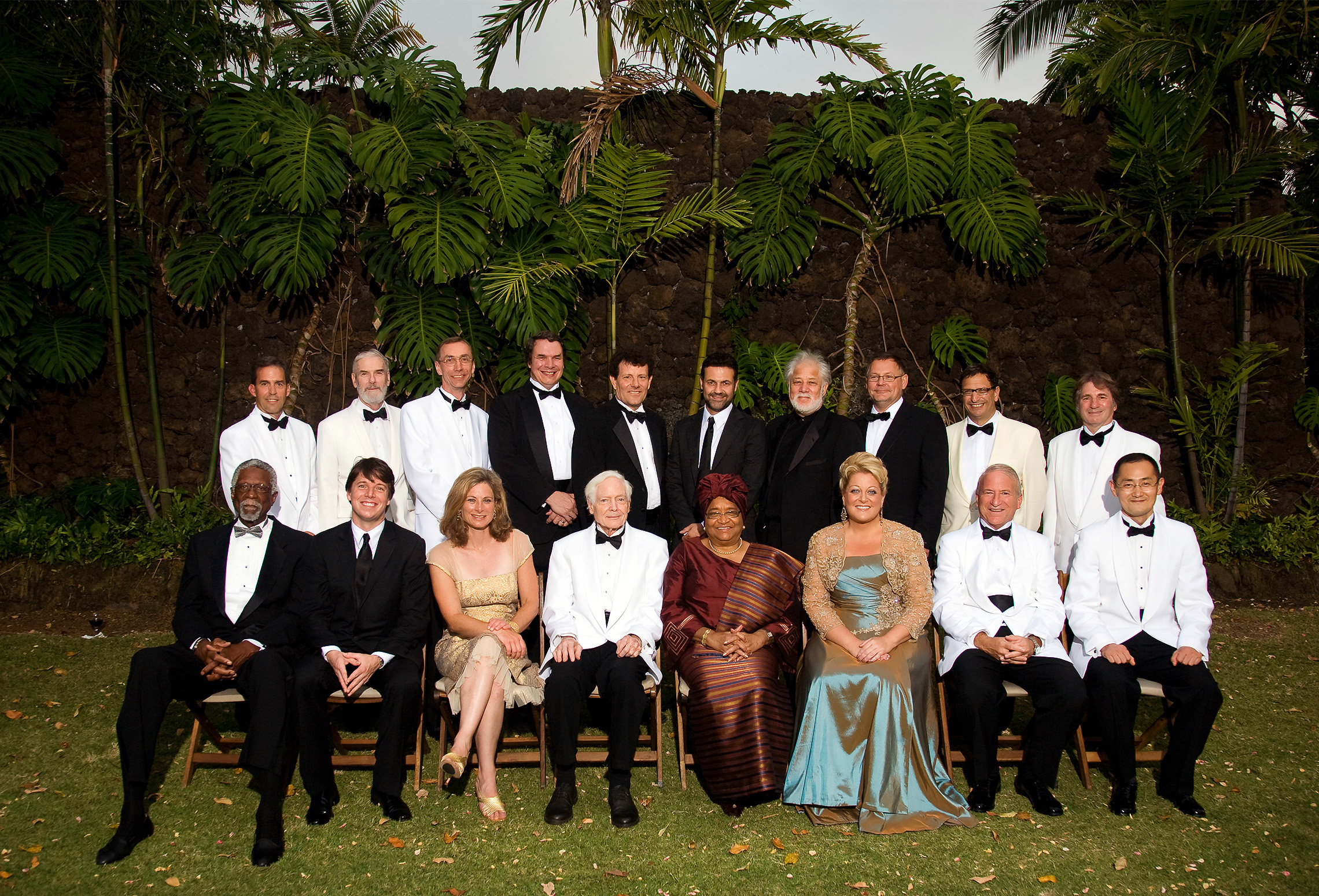
Another view of Afghanistan, Pakistan, and the challenges facing Central Asia came from Greg Mortenson, author of the acclaimed book Three Cups of Tea. Mortenson has led a personal campaign to build schools in the remotest reaches of these troubled countries. He has made it his special concern to educate girls in these deeply traditional societies. Educating women, he asserts, is the key to breaking the cycle of poverty, war and terror that afflicts the region. With slides and video, Mortenson made a powerful impression on the audience, bringing many to tears with his account of the sacrifices made by those who seek to educate women in the Pashtun highlands, and of the ferocity with which the Taliban resists progress for women.
The first panel discussion of Saturday’s session focused on the genetic revolution. Award-winning journalist Kathleen Matthews moderated a panel of the world’s leading authorities on the subject: Dr. Francis S. Collins, who led the successful effort to sequence the human genome; James A. Thomson, one of the first scientists to successfully culture human stem cells; Dr. Shinya Yamanaka, who recently succeeded in reverting adult human skin cells to their stem cell state; and Dr. Elias Zerhouni, Director of the National Institutes of Health; as well as neurosurgeon Dr. Benjamin S. Carson.
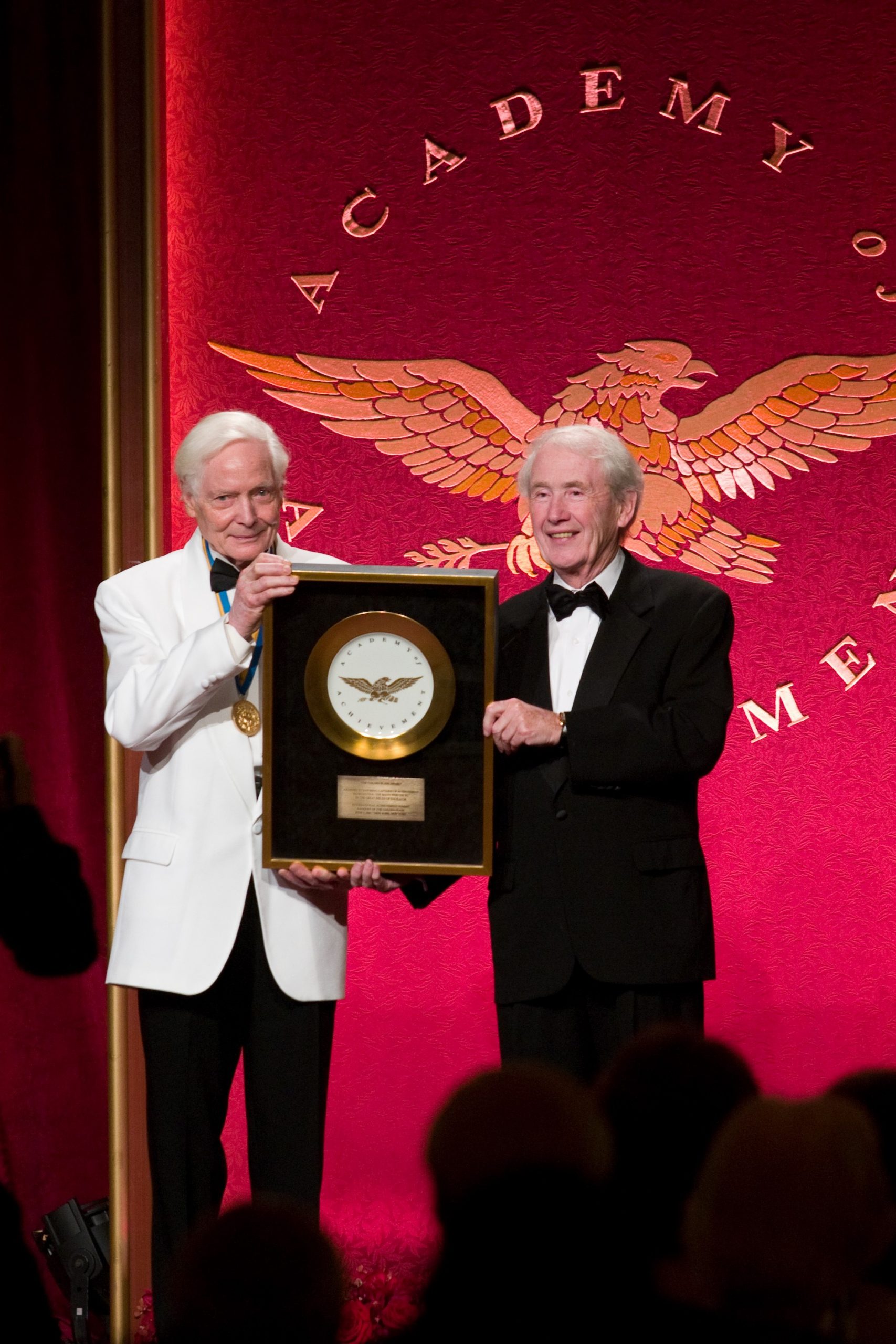
The final panel discussion of the 2008 Summit addressed the upcoming presidential election in the United States. The excitement in the room was palpable as the participants assembled for this conversation. The host of MSNBC’s Hardball, veteran political journalist Chris Matthews, quickly opened the floor to the student delegates, who eagerly questioned a panel of experienced political players: labor leader Andy Stern, the President of Service Employees International Union; Willie Brown, the former Mayor of San Francisco, and for 15 years the Speaker of the California State Assembly; General Wesley Clark, a former presidential candidate himself; Mayor Richard M. Daley, an enthusiastic supporter of Chicago’s favorite son, Barack Obama; Antonio Villaraigosa, Mayor of Los Angeles, a longtime supporter of Hillary Clinton; and independent presidential candidate Ralph Nader. The student delegates’ questions evoked spirited responses from all participants, and the morning session ended with the entire crowd eager to continue the discussion.
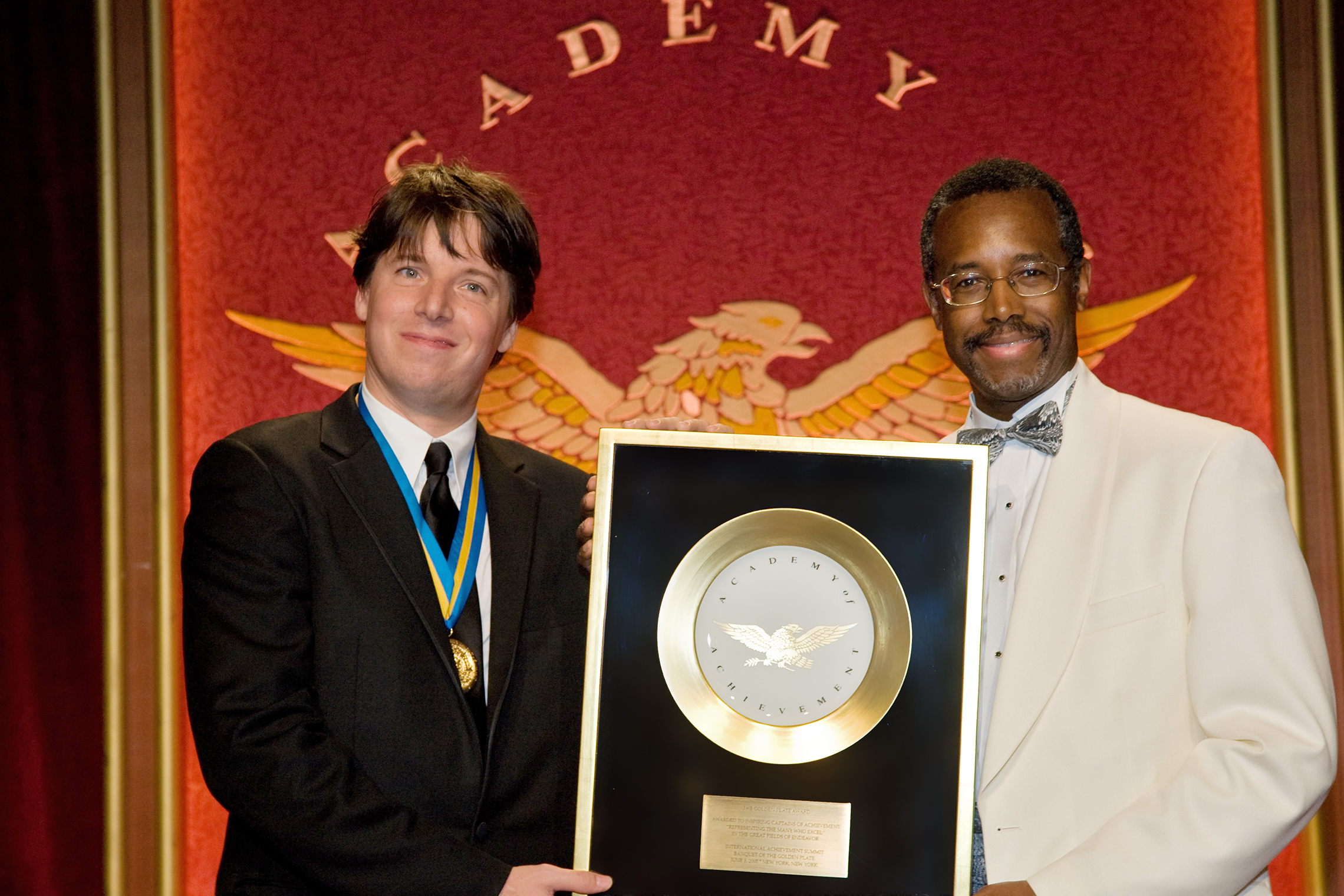
The final afternoon session provided a perfect opportunity for in-depth consideration of topics introduced earlier in the Summit. After a relaxed luncheon by the sea, the student delegates convened in the breezy dining areas of the Hualalai Grille for informal group discussion with Academy members. Seated around small tables in different areas of the restaurant, intimate groups of students and Academy members plumbed a host of subjects. At one table, the President of Liberia and Archbishop Tutu discussed the universal struggle for social justice.
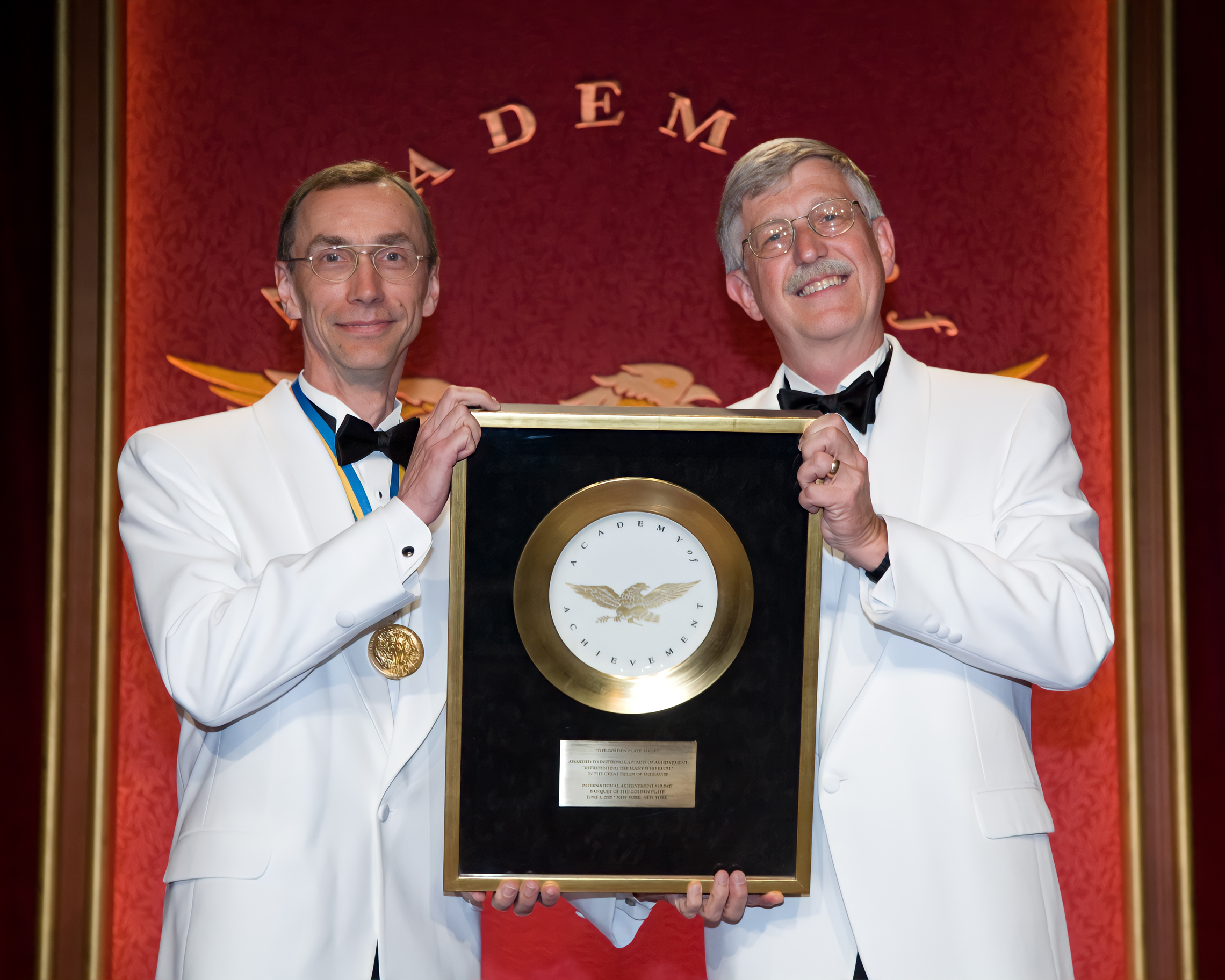
The genetic scientists reconvened at another to continue their conversation with a number of the Academy’s medical students. Dr. A. Michael Spence and Naomi Klein considered the possibility of a global economic crisis in one corner, while George Lucas and Janusz Kaminski discussed the art of film and the responsibility of the artist in an era of global culture.
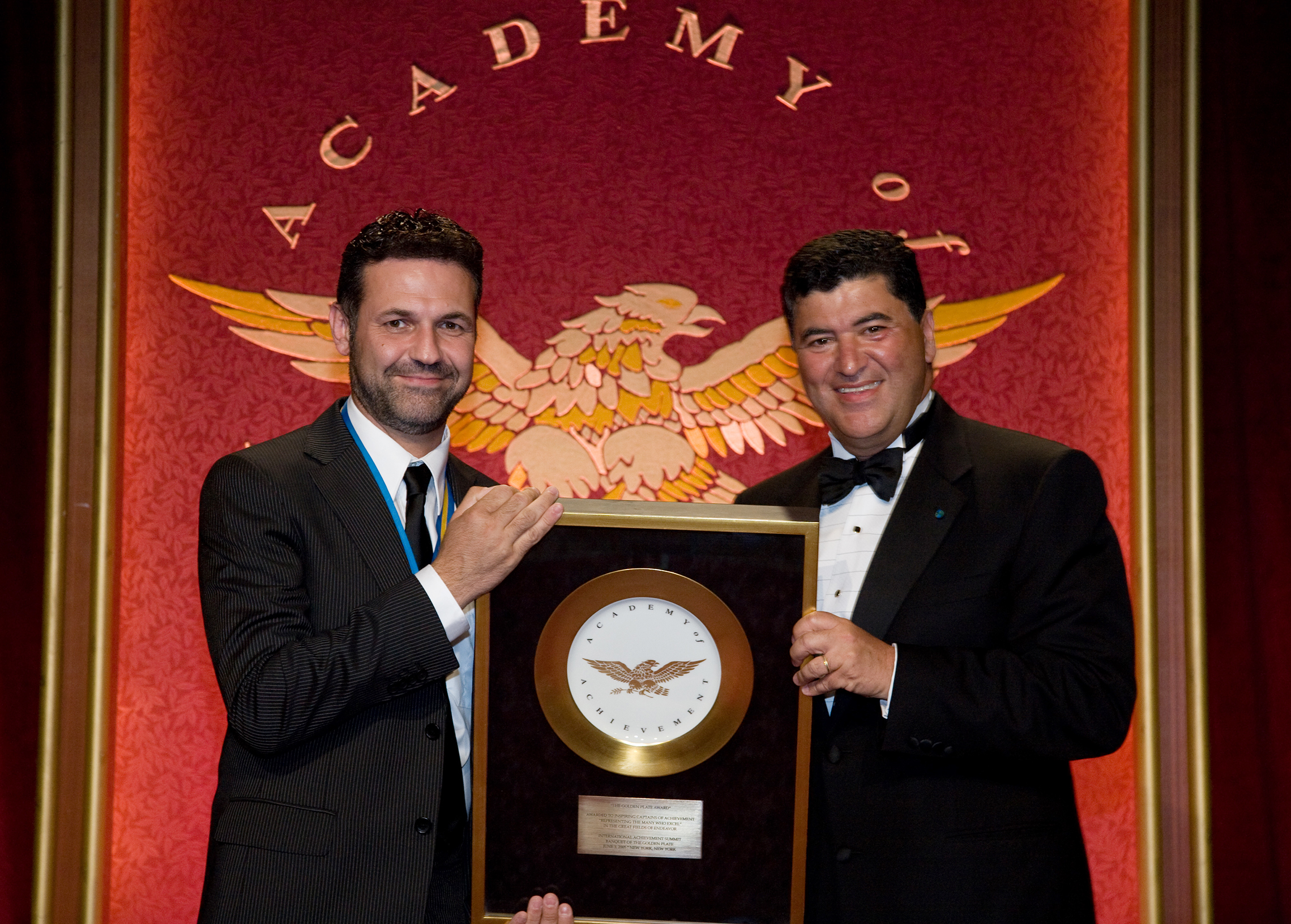
Greg Mortenson and Khaled Hosseini explored the future of Afghanistan, while General Wesley Clark added his insights into the military situation there and in Iraq. On the veranda, W.S. Merwin, Michael Ondaatje and Jonathan Spence discussed literature and history with a group of students, while another table considered the future of science education; and Bill Russell, Naomi Judd and a host of other Academy members met with smaller groups in-between. Over the course of the afternoon, participants saw the mission of the Academy of Achievement realized in full: the leaders of today’s world immersed in deep, thoughtful exchange with the leaders of tomorrow.
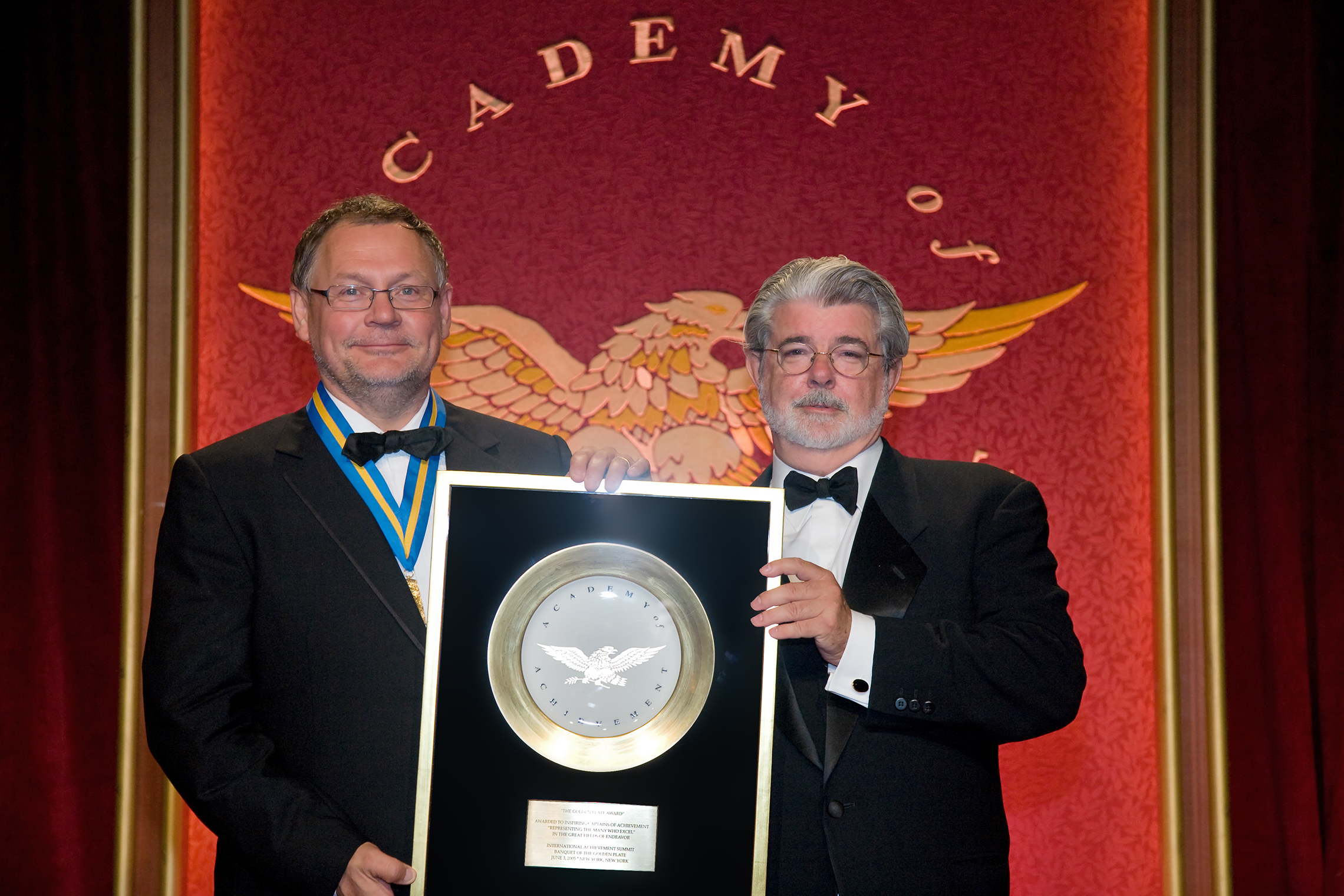
The International Achievement Summit culminated with the 47th annual Banquet of the Golden Plate, in which this year’s honorees were inducted by Academy members in a brief, dignified ceremony. One of the Academy’s student delegates, country music sensation Taylor Swift, performed with her band, singing a number of the songs she wrote for her debut album.
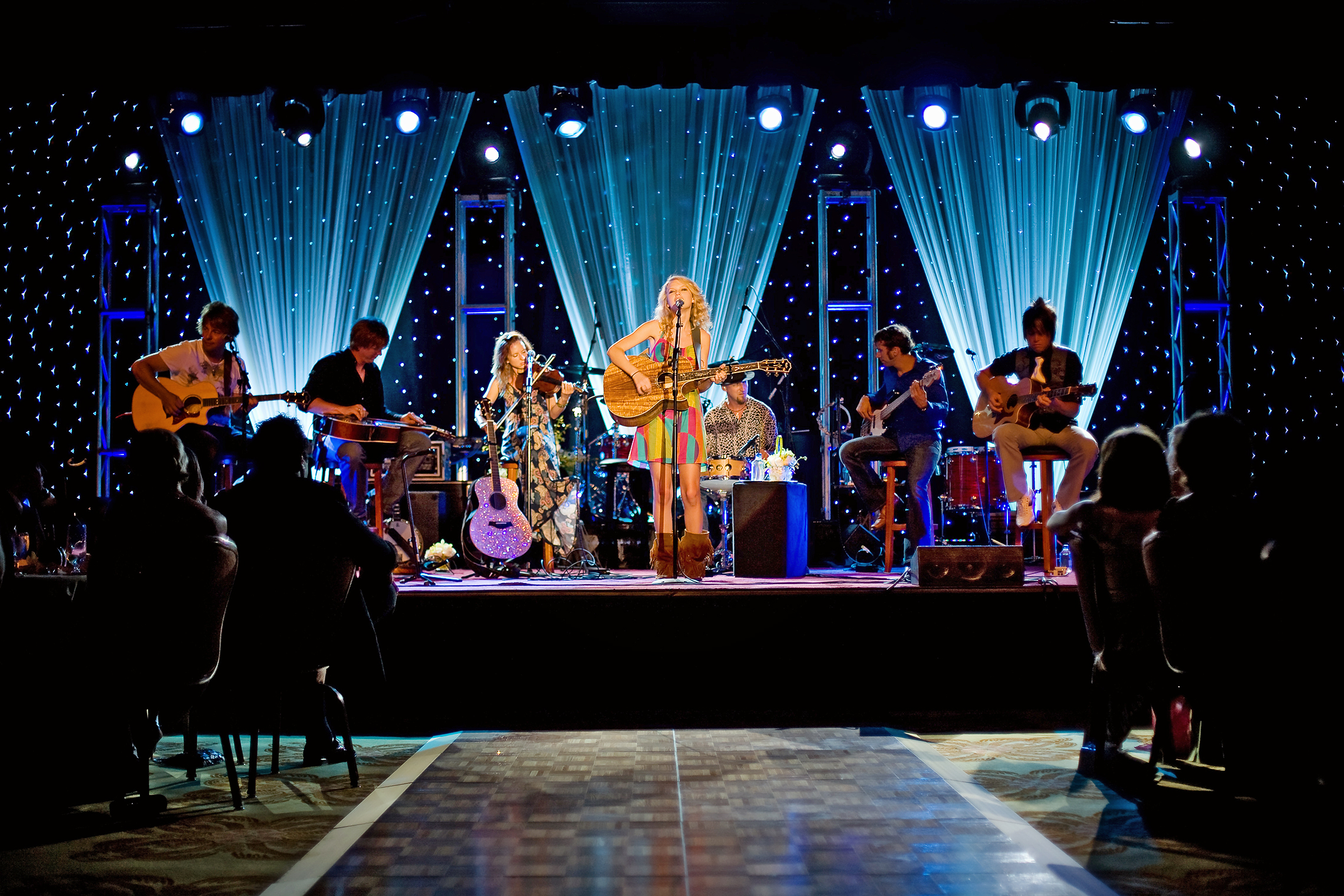
The platinum-selling CD, consisting entirely of her own compositions, had topped the country music charts since the beginning of the year. Graciously thanking the Academy and the Summit Host for the experience of the International Achievement Summit, Miss Swift, still in her teens, wowed the audience with her sharp lyrics and passionate singing. But another musical performance still lay in store.
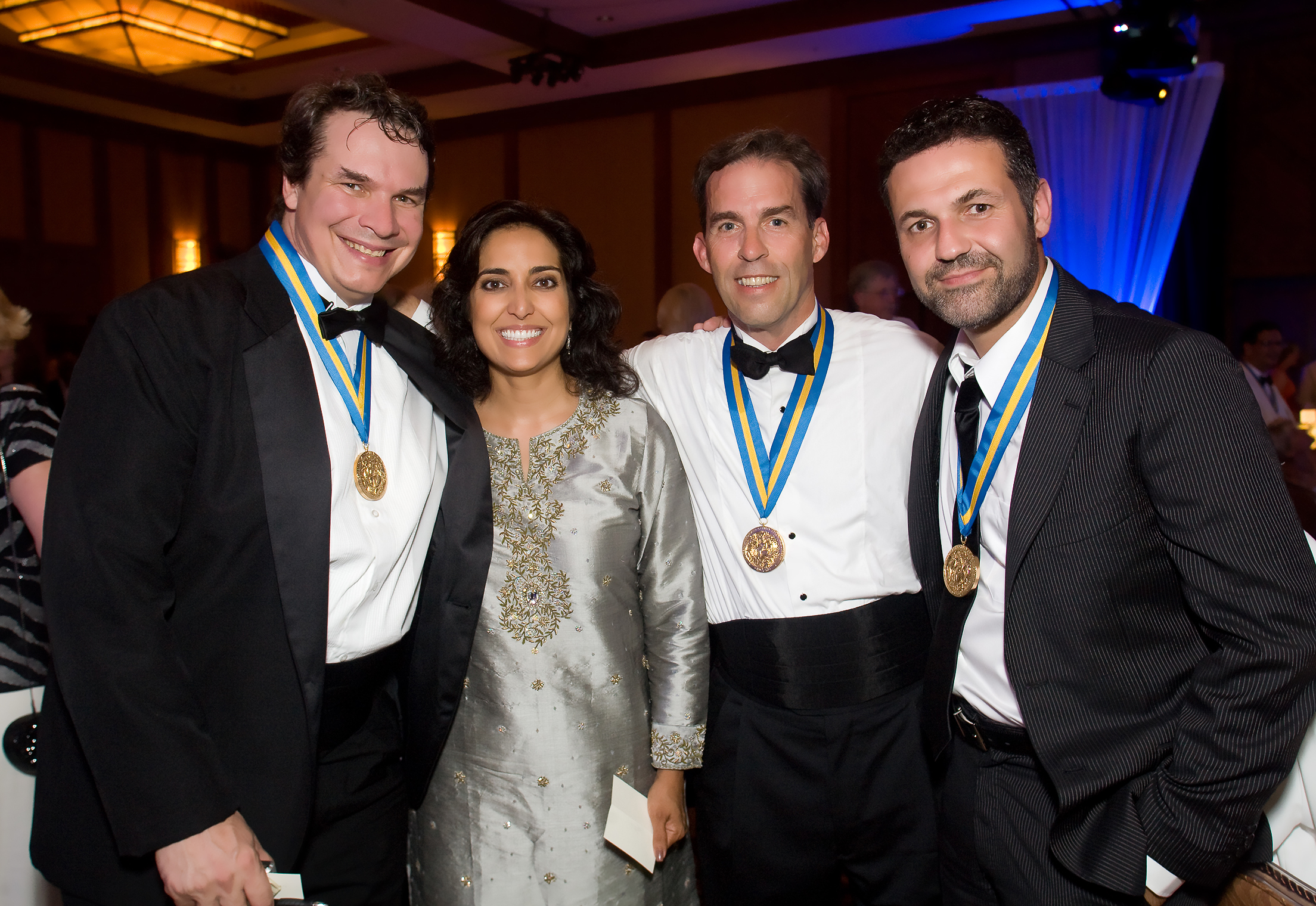
Earlier in the evening, Brian Wilson, the songwriting genius behind the Beach Boys, was inducted into the Academy with the rest of the honorees. After dinner, he returned to the stage with a six-piece band. As the guitars sounded the first notes of his classic summer anthem “California Girls,” the crowd rushed to the dance floor, and honorees, Academy members and student delegates danced deliriously to Wilson’s timeless songs of youth and summer. One after the other, Wilson and the band rolled out the memorable tunes: “Surfin’ USA,” “God Only Knows” and “I Get Around.” “Help Me Rhonda” and “Good Vibrations” had the crowd in a happy frenzy, with many Academy members gleefully mouthing the words to songs they had danced to when they were as young as Taylor Swift. Statesmen, academics, scientists and men of letters all joined in the dance party.

At the end of the set, Brian Wilson introduced a final song — in tribute to his musical hero Chuck Berry — his own version of “Johnny B. Goode.” After that, the band left the stage, but the ovation that rang through the hall soon brought them back. Brian Wilson and the band immediately kicked into “Fun, Fun, Fun,” a classic hymn to carefree youth that carries with it a dawning awareness of adult responsibility lying just around the corner. The song was the perfect finale for an unforgettable week, one in which issues of the greatest seriousness had been discussed in an easygoing, relaxed setting, an atmosphere that freed participants from their preconceptions and fostered an open-minded approach to the world’s problems. If the Academy’s student delegates can carry the spirit of the International Achievement Summit back to their home countries, and into their future careers, we can truly look forward to a better world for all.


The heartfelt enthusiasm and genuine, unaffected gratitude of the student delegates are among the most rewarding aspects of the International Achievement Summit. We invite you to share in their close encounters with Academy members and fellow delegates, as described in their own words.
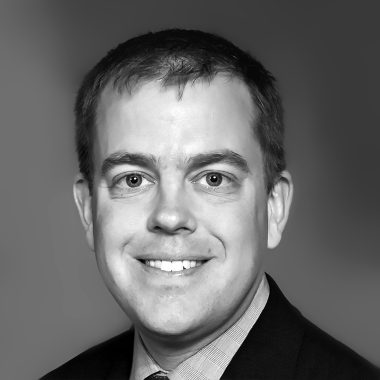
Liam J. Montgomery
University of Virginia School of Law
Dear Mrs. Reynolds,
From the bottom of my heart, I want to thank you for your incredible generosity in hosting me at the 2008 International Achievement Summit in Hawaii. To say that this was one of the highlights of my life would be to vastly understate the magnitude of the experience. It was truly unbelievable, so unbelievable in fact that I have struggled to recount it to my friends and family upon my return. The caliber of people with whom I interacted — from the student delegates, to the 2008 inductees, to the returning Academy members — and the quality of the interactions I had with them had an almost otherworldly character, one that defies proper description.
Where do I begin, then, in describing my experience to you? The value of my time at the Summit is so deep and so multifaceted that I worry that I will do it an injustice in this brief letter to you. Let me start by describing why it was so valuable to me personally, and then move on to my perception of the value of the Summit as a whole. I hope along the way to depict some of the amazing vignettes I experienced in Hawaii to give life and depth to this description.
The Summit prompted in me quite a bit of important — and indeed sometimes painful — soul searching, which I imagine must be one of the Academy’s central aims. Here I was with an incredible array of student delegates, people who are working against poverty in sub-Saharan Africa, or working at the U.S. Office of National AIDS Policy, or researching the answers to vital scientific problems. And so it goes, on and on. As I sat with them and learned from people like Desmond Tutu and the Honorable Ellen Johnson Sirleaf, I — little more than a budding lawyer — felt at times like I did not deserve a place at this extraordinarily important metaphorical table.
But the more I reflected on the matter, the more I realized that there is not just a place for all who attended at this table, but in fact that there is a need for us all, with our diverse backgrounds, skills, and strengths. We require not only people who know how to cure poverty and disease, but also, among other things, people who can be their voice in politics and the law, carrying forward the policies they craft. While I certainly recognize how new to the field of law I am, I think that is precisely the role that people like me can fill.
To the extent, then, that this Summit made me closely examine my career aspirations (and indeed myself as a human being), I humbly submit that I am, at least in part, precisely the audience the Summit should reach. This experience has galvanized me to ensure that my career always includes a focus on helping humanity as a whole and using the gifts I have been given to make the world a better place.
I realize this last may sound a bit trite, but these are the types of emotions and reflections the Summit engendered. And throughout this inward reflection and soul searching, I also bore witness to the value of the Summit not just for me, but for the world as a whole. One of the highlights for me was the chance to meet and speak with Barry Scheck, one of my professional idols. If I could have half the career he has had, I would consider myself a success. Thus, a highlight for me was his talk on the importance of getting serious scientists to examine forensic “science” so that they can determine what can and cannot really be used as evidence to convict someone. After his talk, I had the chance to sit at lunch with him, Dr. Susan Hockfield, and Dr. Lisa Randall. Scheck and the two scientists spent the whole lunch discussing how serious forensic science could be funded and advanced, with each lending their own unique expertise to the discussion. Where else could a civil rights lawyer, the President of MIT, and a world-renowned physicist get together and solve a really important problem? Who would ever otherwise think to put them together? Amazing.
A more emotional experience for me came when I had the chance to meet Joshua Bell. He has long been my favorite violinist, but he became even more so after a difficult time in my life last year when my best friend, the pilot of the Blue Angel airplane that crashed in South Carolina, was killed. I spent the entire day after I found out about his death listening to Mr. Bell’s music and reflecting on the life of my friend and our friendship together. Every time I hear his music now, I think about my friend; while the pain is still raw, I deeply value the chance to have something to keep his memory fresh in my heart. To meet him was a dream come true.
And sometimes the value of the Summit was revealed in the simpler moments. For instance, the time Brandon Butler and I had a beer with Frank McCourt and his wife at the idyllic beach bar, talking about how to improve our schools. Or the small discussion group with Desmond Tutu, who advised us on solving major intractable problems. Or the lunch I had with Richard Daley, who treated me as if I was a long-time colleague, and who conveyed his musings about Barack Obama, Reverend Wright, and how to cure the ills of our cities. Or being inspired by the breathtaking story of Greg Mortenson, one of the most pure-hearted and humble people I have ever met.
And who could ever forget watching world leaders, famous entertainers, and leading scientists rock out on the dance floor as Brian Wilson played an incredible live concert? Indeed, I could go on.
Finally, I would be remiss if I did not thank your staff for their hard work behind the scenes in putting the whole thing together. The event was literally seamless, with each event defying all odds in topping the one that came before it. This includes, as well, the arrangements in the months leading up to the Summit. You are blessed to have such a gifted and dedicated staff: please convey my gratitude to them, as well. I thank you again for believing in me enough to sponsor me on this amazing adventure. I will never forget it and you have my word that I will never forget the lessons I learned there. If there is ever anything I can do to return the favor, please do not hesitate in the least to be in touch with me.
Best regards,
Liam J. Montgomery
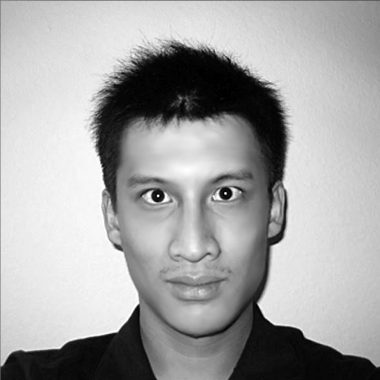
Andrew Wang
Solomon Snyder Scholar, University of Texas Southwestern Medical Center
Dear Mrs. Reynolds,
I am writing you to offer my sincerest gratitude and thanks for an incredible week among the most incredible company, and to share briefly with you the experience you created for me, so that you might glimpse the impact that your generosity has had on my personal and professional aspirations.
The Academy experience for me began on my plane ride from Paris to Kona via London, where I ran most inadvertently into a curious young woman currently doing research on the tribes of south China, who — surprisingly — spoke very good French. I knew, after not more than ten minutes in conversation with her — on topics ranging from sustainable development in Africa to opinions of the various interpretations of the Bach Goldberg Variations — that I would be among very liberated company at the Summit. Two flight transfers later, I shared a cab ride with a Kazakhstani gentleman studying at Oxford, and shared my first Piña Colada with an Indian American woman consulting for the Presidential cabinet of Liberia. I met my roommate the next day after an equally inspiring breakfast. He had spent three years sailing around the world with his then girlfriend — now wife — and is now in the U.K., studying the management of scarce resources in Sudan. Over the next few days we were graced with the company of President Johnson Sirleaf herself, Archbishop Tutu, the Mayors and former Mayor of Chicago, Los Angeles and San Francisco; the Director of NIH, Dr. Elias Zerhouni; humanitarian Greg Mortenson; the violinist Joshua Bell, and an exhaustive list of the who’s who in stem cell research, deep sea exploration, literature, poetry, politics, media and film.
I have often felt alienated in my respective fields because of a subconscious form of exclusivity indigenous to each professional sphere, and indeed to every sphere of knowledge. When I am doing basic science research, for example, I notice that there is a resistance to collaboration with physicians, which manifests itself in the lack of infrastructure in translational research. Likewise, I have noted the reciprocal resistance at the bedside — I have been told more than once that Ph.D.s are not needed to do good research science.
When I approach my respective superiors to tell them that I have to go to Freetown for a few weeks for my work as Director of BeeFreed LLC in Sierra Leone, or that I am leaving for nine months to study and practice medicine in Paris, or that I have to be excused for a week to perform the Vivaldi Four Seasons in Halberstadt, Germany and thus cannot commit to a scientific conference, I am often met by the most incredulous skepticism — as if to ask, “What does a French doctor have to offer a Chinese American classical violinist, or a social entrepreneur in Africa, a bench scientist or an American medical student?”
The Academy embodies a spirit of endless curiosity, learning and possibility. It reminds me that we all have a lot to learn from each other, that learning is an end in itself and not practiced merely to render services, and that the operational definition of learning ought not to be limited to a particular culture or demographic. Indeed, although spending two hours privately with Joshua Bell, playing and discussing the Bach Chaconne and passages from Sibelius, Ysaÿe, and Tchaikovsky, and playing on his ex-Huberman Strad was phenomenally inspiring, hearing him speak on the role of art in politics and society and his thoughts on American politics was also illuminating.
Discussing Solexa technology with Dr. Francis Collins, Director of the Human Genome Project, was enlightening, but watching him sing and play the guitar with the house band at the after-dinner cocktail party was awe-inspiring and jaw-dropping.
For me, the Academy reinforced my belief that we are not limited by our métiers, and that we are capable of forgetting the arbitrary boundaries we draw around ourselves and others.
The international spirit of the Summit resonated well with its inclusion of minds from a plethora of disciplines. As a result, I have made lasting friendships with students from all over the world, with whom I will work to do as much good as possible for the world and the people who live in it. It is for this, Mrs. Reynolds, that I thank you the most. The time spent in their company, with the company of the great leaders of today as a backdrop, revealed to me simultaneously where I have been, where I am, and where I want to be.
I cannot thank you enough for providing me and so many others from around the world with such an extraordinary opportunity. I am sure that all of us who attended the Summit will carry the inspiration and vision of the Summit with us as we move forward in this most critical period of our lives, and as we seek to improve the future of our kind.
I wish you and Mr. Reynolds all the best, and I hope that our paths may cross again.
With the deepest gratitude and humility,
Andrew Wang
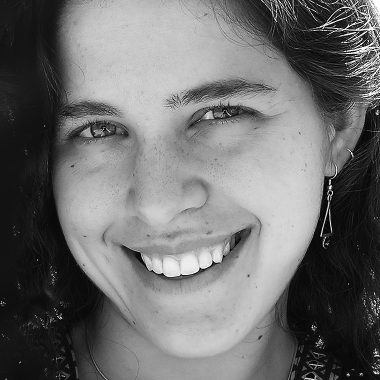
Maya Roberts
Catherine B. Reynolds Foundation Fellow for Social Entrepreneurship, Harvard School of Public Health and Yale University School of Medicine
Dear Mrs. Reynolds,
It is still impossible for me to put into words what exactly being a Reynolds Foundation Fellow has meant for me. It was during the 2008 International Achievement Summit, however, that I finally realized the real power of such a rare opportunity.
I came to the fellowship and the Harvard School of Public Health with high expectations, which were only exceeded by the extraordinary community that we created. Over the course of the academic year, my “fellow fellows” became not only my closest friends, but also my confidants, allies, network, and inspiration. With each co-curricular meeting, we became a closer-knit group of people who yearned to reach out and create sustainable positive social change in our broader community.
The Summit was not only an opportunity for us to expand our connections, but also to broaden our horizons with outstanding achievers who inspired us across every field. I cannot imagine a better venue for a medical student to discuss dedication than with Janusz Kaminski, election politics with Sally Field, strategic messaging with Nicholas Kristof, and the power of personal stories with Maggie Daley and Margery Kraus.
The week that followed brought an op-ed in The New York Times by Nicholas Kristof regarding Greg Mortenson, on his seminal work supporting women’s education in Pakistan and its effects on promoting peace. This op-ed was particularly meaningful for me. Earlier in the summit, Kristof had reminded us that in all that we wanted to accomplish, there would be very difficult times ahead. He warned us that there would likely be a moment when we would be overwhelmed by the emotional impact, and that moment would likely be at a time when we witnessed something calm and simple. As I clapped at the end of his talk, I wondered when I would experience such a moment. In my training so far, I had experienced many challenging times in the hospital, caring for patients, and abroad, studying international health work. I had been deeply moved but never exactly emotionally overwhelmed.
When Mortenson spoke at the summit, however, I finally had my moment. He had a calming, strikingly unassuming voice, and he spoke directly and eloquently about his experience. When he showed a sunset picture of his failed attempt to summit K2, I found that I had tears slipping down my cheeks. I was deeply moved by the notion that our heroes were also regular people, and that despite all they had accomplished, they too had aspirations yet to be achieved.
Unreasonable though it may be, I want to continue to have these aspirations that I have yet to achieve. Much of my training so far has been spent exploring the different methods through which we can achieve the positive social impact that we believe will ultimately come about. My inspiration to attend medical school came after studying in Nepal and seeing firsthand how poor health can undermine all other work. I strove to better understand both the impact of health services and how to design systems that would support the needs of the community. Now, in my final year of medical school, I am able to explore in depth the multiple areas that I tasted during the fellowship and the summit. I am able to work for a for-profit for social good, finish my M.D. thesis work on the health of medical and surgical residents, work for the Department of Health of New York City, and travel to El Salvador and Tanzania to put to work the training I have received in program evaluation to strengthen and scale good ideas into successful action. Ultimately, I hope to use this experience, training, and powerful network to share these critical skills with others looking to develop their own infrastructure. As Kristof mentioned, in the toughest times it is the realization of the simple strengths in life and the knowledge that we will always have unfulfilled dreams that not only allows us — but in fact pushes us — to achieve.
Although I am still not sure how exactly to put into words what being a Reynolds Foundation Fellow means to me, I know that being part of a community of social entrepreneurs has forever changed who I am and how I am going to pursue my dreams. It is with the deepest gratitude that I humbly thank you for your commitment to young leaders and for your unending support in recognizing the unreasonable people we yearn to become.
Sincerely,
Maya Roberts
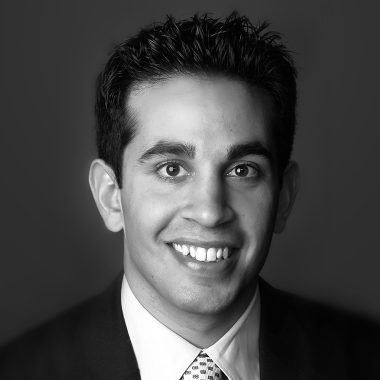
Keyan Salari
Soros Fellow and NIH Fellow, Stanford University School of Medicine
Dear Mrs. Reynolds,
I wish to express my deepest and most heartfelt thanks for providing me the opportunity to attend the Academy of Achievement’s 2008 International Achievement Summit in Hawaii. It was truly the most amazing and inspiring experience I have ever had, and one that I have reviewed on a daily basis since my return to California. It has, in fact, been quite a challenge to faithfully recount to friends, family, and colleagues the surreal encounters with Academy members, which have left lasting impressions on me. Over the course of those five days, the stimulating and unforgettable speeches, presentations and debates imparted valuable lessons to all the student delegates that will certainly enrich our lives moving forward. Moreover, the intimate conversations I had the honor of sharing with some of the most accomplished members of our world community instilled me with an inspiration that I know I will carry with me for a lifetime.
As a cancer researcher and future physician, it was a great privilege and pleasure meeting and hearing from such awe-inspiring figures as Drs. Benjamin Carson, Francis Collins, Susan Hockfield, Svante Paabo, Steven Rosenberg, Lisa Randall, James Thomson, Shinya Yamanaka, and Elias Zerhouni. Particularly germane to my career aspirations as a physician-scientist, my lunch one afternoon with Dr. Steven Rosenberg — Chief of Surgery at the National Cancer Institute and a renowned basic science cancer biologist — allowed me the opportunity to discuss the many challenges of combining a career in medicine and scientific research. Joined by his wife, we also discussed balancing such a demanding career with family and personal life. Dr. Rosenberg’s wisdom and advice fortified my ambition to pursue a career in academic surgical oncology and cancer research; it was a true honor meeting and talking to him.
On another evening I had the great pleasure of meeting Dr. Francis Collins on the beautiful Hawaiian beach, after an astronomer directed us to gaze up through his telescope at the great planet of Jupiter and at prominent star clusters. As a human geneticist studying cancer, Dr. Collins and I have substantially overlapping research interests that stimulated our over-hour-long discussion and debate about the future of human genetics research. As recent advances in human genome research have spurred the development of a number of companies offering direct-to-consumer personalized genomic testing, we discussed the implications for medical practitioners and for patients. As a physician-scientist himself, Dr. Collins supported my assertion that all medical professionals need to be well-versed in the underlying science and attendant psychosocial issues in order to responsibly guide the use, and interpret the results, of such genetic testing. We also discussed various genomics research projects that may lead to a potential scientific collaboration!
Equally amazing to me were the work and achievements of Academy members in disciplines distinct from my own. I was particularly impressed with Dr. Sylvia Earle and David Doubilet, as they presented their magnificent explorations of the deep sea, followed by the very stimulating panel discussion on energy and global climate change moderated by Congressman Edward Markey. Their life work and message of environmental protectionism is of utmost importance to all citizens of our planet, and I am particularly comforted to know that Congressman Markey is making great strides in Congress to ensure that our country is committed to protecting our environment and our natural resources. I am now in the middle of Dr. Earle’s book Sea Change, which I have been finding extremely insightful and charming.
I also had the opportunity to discuss with several Academy members various issues related to the Middle East, a topic of special interest to me as an Iranian-American. With political tension continually rising between the United States and Iran, the Bush administration’s foreign policy rhetoric portends an imminent military conflict, which I discussed with General Wesley Clark. I believe military strikes on Iran would be a catastrophic mistake that would at best not serve the interests of the United States and at worst needlessly threaten the lives of innocent Iranian civilians. As former FBI Director and a federal judge, William Sessions offered very interesting insights over lunch one day on U.S. foreign policy towards Iran. I also had a stimulating discussion on the Western media’s portrayal of Middle Easterners with Sally Field, who played an Iranian woman escaping from Iran in Not Without My Daughter.
On a more personal level, it was very exciting meeting the brilliant novelist and physician Dr. Khaled Hosseini, and hearing Greg Mortenson describe his truly noble work with school girls in Pakistan and Afghanistan, which was incredibly touching and inspiring. Incidentally, my warm memories were recalled when I recently came across an Op-Ed in The New York Times, titled “It Takes a School, Not Missiles” that Nicholas Kristof wrote on Mr. Mortenson’s work and his book Three Cups of Tea.
Finally, the Summit provided a unique opportunity to meet amazing students from around the world.
My fellow student delegates were truly inspiring individuals, and I now look forward to maintaining the numerous friendships formed over the course of our stay in Hawaii.
It was a tremendous honor, and greatly humbling, to meet such extraordinarily accomplished individuals, passionately working in such a diversity of disciplines and regions of the world.
Now having returned to my life in the Bay Area and Stanford, I find myself remarkably motivated and inspired, with a newfound outlook for my pursuit of serving humankind through medicine and science. I offer my deepest and most sincere gratitude for your generosity. Thank you so much for this life-altering experience.
With warmest regards,
Keyan Salari
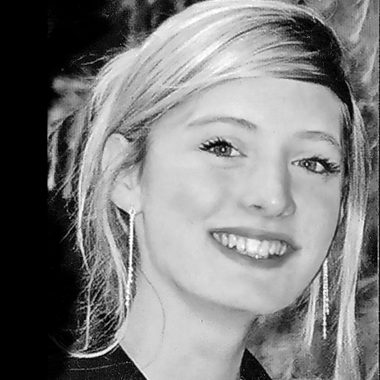
Jennifer Scott
John F. Kennedy Memorial Scholar, John F. Kennedy School of Government, Harvard University
Dear Mrs. Reynolds,
Thank you for extending me the extraordinary opportunity and privilege to attend this year’s international Academy of Achievement summit. Although we were only gathered together in Hawaii for a few short days, I feel sure that the memories, friends and inspiration that I gained from the experience will stay with me for much longer.
I flew into Kona from India, where I am working for the summer analyzing the impact of development-induced displacement on primitive tribal communities. The transition between my living conditions in the village — a low built mud hut without electricity, running water or sanitation — to the Four Seasons could barely have been more dramatic. In all honesty, my 42-hour journey to Hawaii had given me ample time to wonder how I well I would cope with moving between these two different worlds, from extreme tropical poverty to extreme tropical luxury.
After arriving, I remember exactly the moment when I realized that my worries had been missing the point. It was at the inaugural session, when the student delegates were reminded of John F. Kennedy’s urgent message that “with great privilege comes great responsibility.” Hearing this sentiment at the opening, and then throughout the week — and seeing its resonance in the remarkable public service careers of many attendees — made me at once understand the sort of passion and conviction you must have for the Academy and its mission.
As I was to discover, the Summit perfectly embodied Kennedy’s ideal in the most hopeful and empowering way. As each day passed, I found myself reflecting on the unique insights I gained from stimulating and rich interaction with both fellow students and honorees. Whether at panels, speeches, or over conversations at dinner, I was continually reminded of the values I aspire to live by: humility, compassion, resilience, perseverance, humor, courage, optimism and honesty. Perhaps most striking was the overwhelming and genuine enthusiasm that each person had for the contribution they were making to the world. In the words of George Lucas, “Love what you do, and do what you love.”
Around these common themes I learned much from the unique, diverse experience and perspectives that were shared with us. From Greg Mortenson, the incredible story of how his conviction and determination eventually began changing the lives of thousands of Afghani and Pakistani children. From Naomi Judd, an exceptionally brave and inspiring account of how important self-knowledge is to strength and success in the face of adversity. From Nicholas Kristof, the importance for striving for excellence in everything one does, while remembering that the world is much bigger than any individual.
Through my work this summer, I have befriended village families, shared their stories, and struggled with a very few of their many daily hardships: dysentery, physical exhaustion, relentless mosquitoes. I have been both humbled and frustrated by the incredible human potential that survives, despite a total absence of opportunities for its development. Gradually, I became increasingly doubtful about whether my report, with its careful statistical techniques and neat data, would contribute anything at all useful to these people. I often found myself staring at my passport, thinking what a random accident of geography it was that ensured that I was the European woman with the notebook and malarial prophylaxis rather the malnourished Indian woman tending to her dying child.
Talking through these experiences with fellow students — and learning about their backgrounds, views and passions — opened up a whole new vista of possibilities and changed the way I think, not only about my summer work, but also about prospects after graduation. In particular, I was fortunate enough to meet and befriend a young social entrepreneur whose exposure to poverty — and growing frustration with aid work — motivated him to begin a community enterprise. That business is now locally owned and managed successfully, generating incomes and changing lives for the better in multiple ways. These conversations renewed my sense of optimism and self-agency, and left me fired up to start a similar initiative in the tribal district where I spent my summer.
To summarize, I am profoundly grateful to you for your generosity and the encouragement that you give to future generations of leaders through the annual Academy Summit. I hope very much that you are enjoying the remainder of a relaxing summer with your family.
With best wishes,
Jennifer Scott
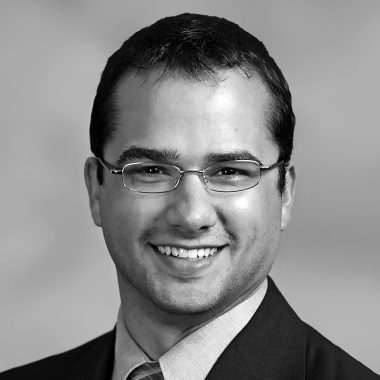
Brad Perez
Howard Hughes Fellow, Duke University School of Medicine
Dear Mrs. Reynolds,
I want to express sincere thanks for the recent incredible experience that I had as a student delegate at the 2008 International Achievement Summit. I’ve never been and will likely never be as eloquent with words as my peers or any of the accomplished friends I made at this year’s Summit. I hope you understand that while I may lack eloquence, there is no shortage of sincerity in my thanks for this amazing opportunity.
I’m thankful that you and your organization were able to organize this amazing event for myself, my peers, and the accomplished guests who were able to join us for the Summit. I’m thankful for the opportunity I had to fly to Hawaii and visit a part of the world I’ve never been to before. I’m thankful for the kind and generous hospitality that we were afforded by the staff of the 2008 International Achievement Summit and the staff of the Four Seasons. Without question, however, what I must thank you for the most is the inspiration that the 2008 International Achievement Summit ignited in me earlier this month.
The source of my inspiration comes from the individuals I was able to learn about and meet at this year’s Summit. Our first speaker, Ken Griffin, spoke of the paramount importance of “human capital” in growing a successful investment firm. Without a doubt, the “human capital” that was brought together at the 2008 International Achievement Summit is unmatched in their desire to make a meaningful change in the world. I never expected that I would ever have the opportunity to meet such an exciting and stimulating group of individuals as I did earlier this month in Hawaii.
I have a laundry list of personal memories that I will never forget from this amazing trip. Rather than highlight the number of interactions (there were many) or the amount of face time (there was a lot) that I had with some of the amazing accomplished guests, I would like to relay just a few memorable moments from my time at the Summit.
After only a day of listening to amazing and exciting stories about the achievements of the esteemed guests and my student delegate peers, the energy to change the world and make a meaningful difference was palpable.
Ms. Naomi Klein took the stage and outlined, in a way that I only wish I had the ability to do, ideas about the direction that we should consider channeling this energy. She spoke of those less fortunate than ourselves who lack the necessary “safety nets” to be able to take risks and improve their plights. She spoke of the chance that we, as individuals who have been afforded great opportunities, have to offer these “safety nets” to those less fortunate so that they can take risks and do great things. In my humble and no doubt meager experiences so far, I have found my inspiration in working towards building these types of nets, and the 2008 International Achievement Summit helped me to ignite this inspiration by surrounding me with like-minded students and individuals who have already found happiness and success in making the world a better place. There is no better feeling than to surmount one’s own obstacles, challenge bureaucracy and perhaps even organize others to make a meaningful change to improve the lives of others. Ms. Klein’s speech articulated a direction in which I hope to be able to channel my energies.
As a medical student, I look forward to soon being able to improve the lives of others, one patient at a time. I also hope to have the opportunity to make additional impact by working to improve scientific understanding and medical technology so that we can deliver better care to entire populations of patients. I felt incredibly fortunate to have the opportunity to speak with Dr. Elias Zerhouni about the impact that he has made and continues to make as Director of the NIH. I was relieved and excited to meet such a grounded and considerate individual who leads an organization with unparalleled magnitude in the field of biomedical research. Dr. Zerhouni encouraged me to challenge myself, to take reasonable risks in working to discover new things, and to think outside the box as I embark on a career aimed at enhancing the lives of others by improving our ability to deliver high quality and efficient healthcare.
The 2008 International Achievement Summit is not an experience I will ever forget. I’m thankful for the specific and targeted encouragement offered by a number of the esteemed guests as I shared my own experiences and aspirations with them. Equally inspiring were the conversations that I had with like-minded student delegates who are each hoping to change the world in their own meaningful way.
I look forward to carrying the inspiration and motivation I gained at the Summit with me as I continue in my career, cognizant of the fact that I, like so many of the esteemed guests I met at the Summit, can make a truly meaningful difference to improve our world. Please add one more person to the growing list of individuals that the Catherine B. Reynolds Foundation positively impacts through its philanthropic efforts. Thank you again for the inspiration. Please let me know if there is anything that I can do to help in the future.
Warmest regards,
Brad Perez
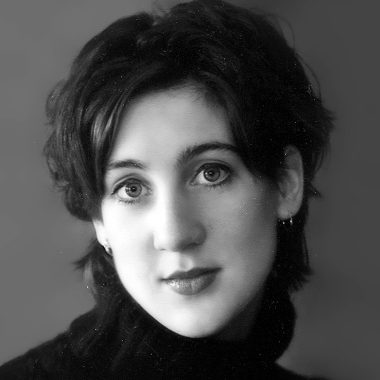
Sara Heller
Georgetown Public Policy Institute, Georgetown University
Dear Mrs. Reynolds,
I am not quite sure how to express my gratitude for your invitation to the 2008 International Achievement Summit. It was an experience deserving more than just a thank you, but alas, that is all I have to offer. Perhaps I can follow the examples set by W.S. Merwin and Khaled Hosseini, and hope that simple words can convey the heartfelt message beneath them. Your generosity in hosting the event, your thoughtfulness in choosing distinguished leaders from a broad variety of fields, and your willingness to provide a group of graduate students access to so many remarkable people are truly astonishing.
Over the course of the Summit, I had several conversations about the purpose of the event. It only takes the presence of a few bright, motivated students to ensure the question will be asked: “Why are we here?” For me, the answer was clear: to return to our studies, work and lives with a renewed sense of purpose. Graduate school can be tiring and tedious, especially when making a real difference in the world seems so far away. But hearing from Khaled Hosseini, Greg Mortenson, Frank McCourt and the like made it clear that the doubts and fears of youth are an almost universal phenomenon. Even world leaders weren’t sure where they would end up or if they had the power to change injustice. Yet they successfully ended up where they are today. What I took from the Summit is that I, too, can end up there, guided by both my own determination and a healthy dose of chance.
That inspiration would have been enough to make the Summit an enormously rewarding experience. But the additional opportunity to engage these leaders in one-on-one conversations made it a once-in-a-lifetime trip. Talking to Mayor Daley about the issues facing his city – especially as I am about to move to Chicago for a doctoral program in public policy – was an opportunity I never dreamed of having. I wrote my master’s thesis on Chicago’s public school system, so talking to him and his wife (who have been so integral in the reforms I was studying) was thrilling. Similarly, my conversation with Chris Matthews about his potential political future in my home state of Pennsylvania is a moment I will never forget.
Thank you so much once again for the opportunity to share four days in July with such a remarkable group of people. It was an unforgettable trip, which has not only inspired me to keep walking the long road towards a doctorate but also to take chances on the forks in the road along the way.
With sincere gratitude,
Sara Heller
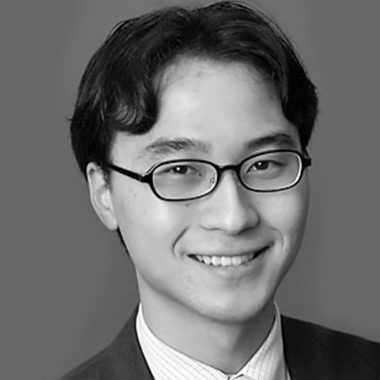
Scott Lee
Soros Fellow, Harvard Medical School and Harvard Business School
Dear Mrs. Reynolds,
Thank you so much for enabling me to participate in this year’s International Achievement Summit. When I try to describe the experience to myself, to others, and now to you, it seems that all I can muster are platitudes. The Summit truly was a “once-in-a-lifetime opportunity” to meet and engage with “extraordinary leaders” (young and old) about topics of central importance to “the world and our role in it.” To top it off, this year’s Summit took place in, of all places, “paradise.”
I am embarrassed to invoke these phrases because they are sullied by misuse. Many experiences are said to be “once-in-a-lifetime,” but how many truly are? That, I must confess, was my reaction when I first heard about the International Achievement Summit a few years ago from a friend who had recently attended it. She raved about her experience, regaling me with the names of luminaries she met. I wondered what all the fuss was about. Was it the glitz and glamour? The chance, crudely put, to rub shoulders with famous people? If only that alone, surely there were more noble purposes for which to bring together accomplished, idealistic, visionary students from across the world.
But now that I myself have been a delegate, I recognize the error of my initial skepticism. The International Achievement Summit is in fact a treasure, but not because of the proximity to fame that it provides, however momentarily. Naturally, this proximity is what most interests our friends and family when we tell our stories afterward, but that is only because the true measure of the Summit is far more difficult to capture — hence the platitudes.
The treasure of the International Achievement Summit, I believe, lies not in the glitzy and glamorous Banquet of the Golden Plate, but in humbler venues: in the symposium hall, in the reception area between sessions, even — indeed, especially — in the hotel restaurant, say, at lunchtime. For it is in these venues that experiences of the truly once-in-a-lifetime sort take place: vibrant, rangy conversations between a Nobel-awarded scientist, a Pulitzer-awarded poet, an Oscar-awarded actress — and a student who, treated as an equal, fully holds her own in the dialogue.
Or a journalist, an athlete, a musician — all world-class — and a student, engaged and unfazed. Or a head of state, a leading entrepreneur, an influential writer, and a student who intends a career in neither public service, business, nor the arts (or so he thinks) and relishes the experience for precisely that reason. Where else does this happen? When else will it ever happen again in our lifetimes?
Amidst the larger treasure of these conversations, each of us takes away smaller, more personal treasures. I will treasure the opportunities I had to speak with Academy members, and their spouses and even their children, about what it means to be a family in the maelstrom of an accomplished life (and it certainly takes no less than a family to achieve such a life). I will treasure intimate, soul-searching conversations with Academy members in which our implicit identities turned from “luminary” and “student” to — more simply — parent and child, or more simply still, two human beings wandering through this mysterious life.
I will treasure the realization that, yes, Academy members are exceedingly exceptional, but they are also exceedingly normal — normal in their struggles, their doubts, their flaws.
After all, the sum total of each of our lives is but a constellation of variations on themes — themes of hardship, growth, love, self-awareness, community, tragedy, elation. In every moment, we are all singing our personal symphonies — cacophonously, beautifully. If only we could hear our lives! Perhaps then, amidst the deafening clamor, we would occasionally pause, and our heads would turn to hear, rising above like a bell, a note of exceptional clarity: Desmond Tutu singing justice; Bill Russell singing leadership; Naomi Judd singing resilience; Sylvia Earle singing responsibility; Brian Wilson singing joy. To hear not just one of these piercing, clarion notes, but a whole chorus of them, and not from afar, but in the quietude of a conversation on the beach — was truly a treasure.
I already miss the experience — the discussions, the atmosphere, the chance to reflect earnestly and expansively — as one misses a distant childhood memory: I will never have it again. But I am grateful to have had it at all. Thank you.
Sincerely,
Scott Lee
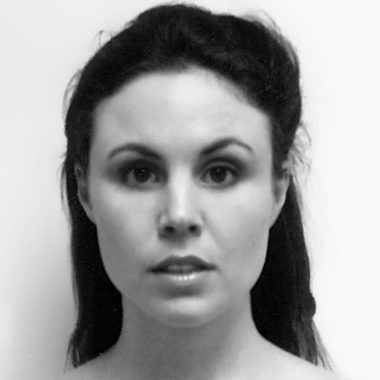
Willow Sainsbury
Rhodes Scholar, Magdalen College, Oxford University
Dear Mrs. Reynolds,
I am writing to express my gratitude to you for your sponsorship of my attendance at the 2008 International Achievement Summit in Kona, Hawaii. It was difficult to imagine anything beyond the shores of Hawaii at the time of the conference as I could not believe what was happening around me and I wished to stay in every moment.
I attempted to convey my feelings about the Summit to my family members, and friends, but despite my animation, excitement, pictures and lengthy descriptions, I am convinced that I have failed.
Thank you for this indescribable opportunity of a lifetime. I would like to begin by thanking you for the flight from the United Kingdom, the hotel accommodation, the incredible food and the amazing staff and organization. I have never been to Hawaii before, or stayed in accommodation like the Kona Village resort. After arriving at night, I woke up to a surreal paradise. Before even knowing what to expect, I had snorkeled with a sea turtle, had fresh Mahi Mahi for breakfast, and struck up a conversation with some impressive student delegates. I grew up by the sea, and while being at Oxford University I realized I had not swum in the sea for two years. Only three hours into the trip and I could have gone home refreshed and awe-inspired. Needless to say, I could not have understood in that moment that this was only the beginning.
On the first morning of the Summit I woke up particularly early, and 15 minutes before breakfast, I was walking across to the Four Seasons. I was shocked to find a staff member in the middle of the beach just after 7:00 am to check that I knew the way and to say good morning. I could not believe it, but throughout the course of the Summit this seemed to be so typical of the incredible organization and the Academy staff. I am most grateful to them for their help and guidance.
Every day of individual talks and panels took my breath away. I wanted to absorb every moment and I felt every emotion possible. I would like to express my thanks by sharing with you just a few special highlights out of so many. The panel of mayors, including Mayor Villaraigosa, former Mayor Brown, and Mayor Daley, was incredibly important to me. The comparison with national politics was pertinent. I have long been interested in local politics in New Zealand and although New Zealand is markedly different from the USA in terms of political structure, many of their stories of the highlights and struggles of being a mayor seemed to be universally applicable. The panels and the individual addresses appeared so frank and open that I felt part of something very special. I was fortunate enough to sit with Andy Stern at lunch after the Democratic panel and his fiery discussion with Ralph Nader. He was insightful, humble, and not afraid to admit regret and state his points ardently. I witnessed this conviction and humility in so many conversations that I was fortunate enough to have at the conference. My conversation with David Gergen has helped me restructure my thesis and reminded me what is really important in working with notions of class and gifted education. I found Naomi Klein’s description of class, which was whether or not you have a safety net when you fail, to be one of the most succinct, poignant and accurate descriptions I have heard. I will be forever appreciative of these moments that cannot be found in any book.
I would also like to thank you for inviting students at this particular moment in our careers. Like many of the student delegates who attended the Summit, I had won an illustrious scholarship at the beginning of my studies. Now, towards the end of our studies, it can be argued that we have been afforded every opportunity, but it is easy to lose sight of the drive and direction that was recognized by the committee that awarded the scholarship in the first place. I know from talking to other student delegates, and from my own experience, that the Summit played a crucial role in re-igniting these fires and reminding us of all that we want to achieve. Thank you for inviting us at this particular point in our lives.
The setting of Hawaii was amazing and I do not think I will ever have a July 4th like the one I was lucky enough to share with you. My ears are still filled with Joshua Bell’s, Deborah Voigt’s, Chuck Berry’s and Brian Wilson’s performances. I have never been, nor ever will go, to a musical celebration like the 2008 Academy of Achievement Summit. In short, the whole experience was extraordinary, humbling, and has helped me refocus in a very important time in my life.
My husband and I look forward to the arrival of our baby daughter on November 9. She will be reminded that while in the womb she heard some of the greatest men and women of her time speak, discuss, play and sing, on the beaches in Hawaii. I am excited to hold her hand when I achieve the many things that will hopefully mean I can one day return to the International Achievement Summit. I want to thank you again for sponsoring my attendance and your work in making this all possible.
Yours Sincerely,
Willow Sainsbury
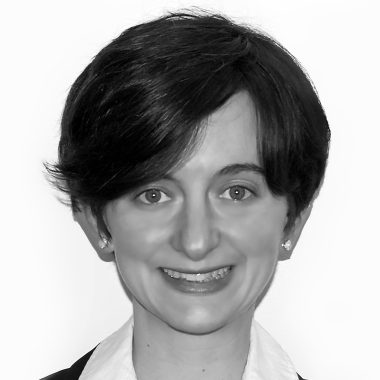
Jane Manners
Heyman Fellow, Harvard Law School
Dear Mrs. Reynolds,
Thank you, thank you, thank you! I’ve been sitting at my desk for several minutes now, trying to come up with just the right adjectives to describe my experience at the International Achievement Summit this past Fourth of July weekend. Magical, inspiring, unforgettable, surreal — all apply, but none quite seems to do the experience justice. The five days that you so generously made possible were among the most exciting and rewarding of my life, and helped to renew my sense of direction, purpose, and civic obligation at a point in my career when it really mattered.
I probably shouldn’t admit this, but when I received the invitation to the Summit, I had never heard of the Academy of Achievement. An all-expense-paid trip to Hawaii sounded a little too good to be true, and despite the proof contained in the accompanying hardbound book documenting an earlier Summit, I was incredulous.
Bill Clinton, Desmond Tutu and Sheryl Crow, all at the same conference?
And (even more fantastic) I’m invited? I promptly accepted, but I still wasn’t quite sure what to expect when I boarded the plane at Logan Airport a few months later.
I got my first taste of what was in store when I spotted General Wesley Clark at the Chicago airport. I had been the New Hampshire scheduler for General Clark’s presidential campaign in 2003-2004, and so I went up to the General to introduce myself, not realizing that he too was heading to Hawaii. Only when I reached my gate and saw General and Mrs. Clark about to board the plane did I realize that they were also going to the Achievement Summit.
The weekend was full of such spottings. From moving presentations, such as Frank McCourt’s description of his years as a New York City public school teacher, to spirited panel discussions, such as the conversation among Mayors Daley, Brown, and Villaraigosa about the challenges and thrills of city governance, to an intimate conversation with Sally Field about the travails of acting in Hollywood, the conference contained countless inspiring public and private moments.
And plenty of thrilling ones, too: it will be hard ever to top the experience of jumping on stage with Michael Ondaatje to dance while Chuck Berry played “Sweet Little Sixteen,” or of looking through a high-powered telescope at a far-off constellation while Wes Clark peppered the astronomer with questions about the number of light years between the stars in the viewfinder.
I have another confession: when I first saw the roster of famous guests the Academy has hosted in the past, I couldn’t quite figure out what drew such an impressive, diverse set of notables to the Summit. Surely, I thought, such people have opportunities to socialize with each other in lovely places all the time — why do so many choose to attend this particular event year after year?
Once I’d arrived in Hawaii, it didn’t take me long to figure it out. Yes, the Summit’s accomplished guests probably have plenty of opportunities to attend elegant functions in gorgeous settings. But it’s hard to imagine that many of those functions draw such a compelling crowd: men and women of achievement in an astonishingly wide range of fields, mixed with students with an equally wide range of interests, all eager to hear each other’s stories. And what stories they were! From listening to George Lucas recall how he discovered his remarkable gift for movie-making practically by chance, to hearing Greg Mortenson’s description of living out of his car for several months, having sold all of his possessions in order to make good on his promise to build a school in a Pakistani village, to listening to my roommate tell how she achieved her personal best in the 800 meters at the 2004 Olympic Trials, just weeks after undergoing knee surgery — I drew enough inspiration from those four-and-a-half days to last a lifetime!
That inspiration couldn’t have come at a better time. I am about to start my third year of law school, which is the time that most law students decide how they will use their law degree going forward. The decision is similar to the decision that many Summit guests described having once faced themselves: to take the secure, well-paying job or to follow a riskier route, where the rewards may in the end be greater but the payoff less certain. If there was one common thread among these presentations, it was an exhortation to take the chance, to ask the question, to pursue the challenge. These pieces of wisdom will echo in my head as I choose my own path in the coming months and years, and for that — and for everything else I took away from my four-and-a-half days in paradise — I am deeply grateful.
Sincerely,
Jane Manners
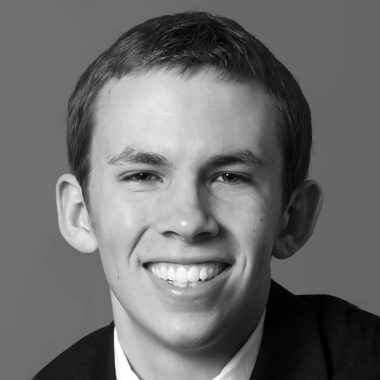
Shad White
Truman Scholar, University of Mississippi
Dear Mrs. Reynolds,
By now I am certain that you have heard gratitude articulated in every way imaginable for the wonderful experiences that the International Achievement Summit offers. Let me join the chorus of those who have thanked and will thank you in coming months and years. The Achievement Summit was one of the most remarkable events of my life. I am certain I will never forget it.
Despite all the delightful intellectual stimuli that the Summit offered, my favorite times in Hawaii involved the music. Though you may not know it by reading my résumé (I was a policy analyst at the Department of Education in Washington, D.C., when I visited the Summit; now I am a policy fellow at the Pew Center on the States), but I am a music fanatic. I have played guitar for about four years, have been singing in formal choirs since I was in elementary school, and, when the mood strikes me, will call upon a few short years of piano instruction or an occasional interest in the harmonica. I sang in church for most of my life and competitively in audition-based choirs and school choruses through high school. When I started college, I started singing in weddings during both ceremonies and as reception entertainment. I’ve since expanded to singing in restaurants and a few small concerts or festivals.
I say all that to simply stress how important music is in my life, as it is not readily apparent if we have a conversation in passing, or if one has only seen my professional background on a sheet of paper. I find in music a means of emotional release that sustains me through thick and thin. I love all of it — both playing and listening.
With that knowledge, it should already be clear how much enjoyment I drew from our Brian Wilson experience on Saturday night in Kona. Though I’ve had the chance to live an exciting and fulfilling life so far, I have never made my parents more jealous than when I talked about dancing with Sally Field while listening to live Beach Boys hits performed by the artist himself. Never in my wildest dreams could I have imagined dancing the night away to Chuck Berry and singing “Johnny B. Goode” right alongside him.
It was a delight to hear Taylor Swift on Saturday night, and an even bigger delight to explain to all the Yankees at my table how well-known she is in Mississippi, my home state. Joshua Bell is nothing short of phenomenal, and Deborah Voigt’s open-air concert at one of our first dinners was magical. When anyone asks me to explain the International Achievement Summit, I am rarely able to summon the language to do justice to the event as a whole. Typically, the best description I can offer is simply: “I danced next to George Lucas and Wesley Clark and Judd Apatow while Chuck Berry played an outdoor concert. And that was just one night.”
Beyond the visceral connection I had to the music of the Summit, I truly appreciated the opportunity to sit with some of the most brilliant minds and most visionary leaders of our day. On the first morning of the Summit, I was walking leisurely with a fellow student (Ben) toward the restaurant when a gruff, stocky man bearing bed-head hair, dark shades, and a ball cap yelled from behind us, “Hey, you’re going the wrong way if you’re going to breakfast.” The man caught up to us and steered Ben and me in the right direction. As the three of us walked along, I introduced myself as “Shad from Mississippi.” The man offered no name in return. I asked, “Where are you from?”
“Chicago,” he replied.
“Oh, cool. What do you do there?” I asked innocently.
“I’m the mayor,” he said. As you can see, I rarely make a fool of myself in front of the powerful. What followed that morning was an invigorating conversation with Mayor Daley and my new friend Ben. We discussed his education initiatives in Chicago and some of the reform going on in cities across the country. Later that day, Mayor Daley grabbed me and asked me and two other friends to eat lunch with him, his wife, and Chris Matthews. Mrs. Daley was a wonderfully engaging woman who was extraordinarily knowledgeable about afterschool programs, and it was, as you can suspect, a delight to talk politics with Chris.
That story epitomizes the Summit for me. The Summit not only puts students like myself in close contact with important leaders, but it also gives us an opportunity for real interaction, unfettered by the busy schedules that these leaders would normally keep. The reason this interaction is important is twofold: First, we are given a chance to pick the brains of brilliant men and women to understand how they view the world. Second, and arguably more importantly, we get to understand that great things are accomplished by people like us — brilliant, highly motivated people who, at the end of every day, want to eat, sleep and play like every other human on this planet. The Summit humanizes our heroes in our minds. This is something that no amount of reading on a person’s accomplishments could ever convey.
After going to the Summit, I believe all students left with the sense that the greatness that the Summit honorees have achieved is potentially attainable, whether that greatness is the creation of our own beautiful piece of music, or a successful inner-city school program, or a new cure for a disease. The Summit gives smart students the chance to see beyond their years to what can be accomplished if we press on with the work of our lives.
Indeed, if the honorees reminded me of the attainability of great accomplishment for the benefit of our fellow man, we reminded each other of the energy that is afforded to those efforts. All the other students at the Summit were so vibrant and full of excitement about their endeavors. In one minute I could be discussing accountability in K-12 public schools with a Harvard law graduate and in another I could be listening to an MIT grad student talk passionately about nuclear pebble-bed reactors and the future of geothermal technology. Allowing students with a diversity of interests to come into an invigorating environment caused ideas to bounce around the room like pinballs, cutting across fields and interests. Sally Field talked to scientists about the value of intuition. Willie Brown talked to future healers about the importance of power. Wesley Clark talked to pacifists about security. Ralph Nader stared out at the ocean a lot. It was great.
Thank you again for an amazing experience. For someone who’s never traveled farther west than Texas, Hawaii was a blessing for me in many ways and an unparalleled reward for the hard work of the last few years. More than once I had to stop during a beautiful moment or discussion, catch my breath, and say to myself, “Enjoy this. It is rare.” I returned home with too many stories to tell, too many amazing people to talk about, and too many fond memories to forget. I am forever grateful.
I hope our paths cross again in the future.
All the best,
Shad White
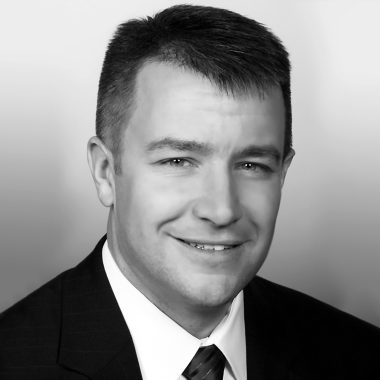
Captain Mark J. Crow, USA
Woodrow Wilson School of Public and International Affairs, Princeton University
Dear Mrs. Reynolds,
I am writing to thank you for your tremendous generosity in hosting my attendance at the 47th annual International Achievement Summit. I was incredibly honored to be a student delegate for the 2008 Summit on the Big Island of Hawaii.
It is difficult to even know where to start in expressing my thanks. The Summit provided me with moments of both personal inspiration and professional admiration for not only the honorees, but also my fellow student delegates. The diversity and strength of the student delegates reflected the tremendous amount of work and earnestness you and your foundation’s staff invest in the Summit each year. I cannot thank you enough for sponsoring my attendance at this great convention.
While I recognize that by now you have read many letters recounting the myriad special moments that occurred between the honorees, the students and the returning alumni, I would like to share the two that were exceptional to me. They include an intimate conversation with George Lucas regarding not filmmaking, but family, and the opportunity I had to speak with Rick Atkinson, someone whose work literally changed the course of my life.
As a young undergraduate student at the University of Michigan, I was also enrolled in the Air Force Reserve Officer Training Corps and on my way to becoming an Air Force Officer specializing in computers, satellites and nuclear deterrence. However, it was during one college summer as an intern at the Pentagon, that I had the opportunity to pick up and read Rick Atkinson’s seminal work on the West Point class of 1966, The Long Gray Line. It was this work that inspired me and gave me the confidence to eventually complete an inter-service transfer to the United States Army so that I might become an infantry officer and the leader of men Mr. Atkinson so stirringly recounted in his work. It was also ironic that many years later, Mr. Atkinson, as an embed with the 101st Airborne Division, recounted the division’s invasion of Iraq in his work, In the Company of Soldiers. I was part of the division during that time and found myself later reading his work, this time not as an interested bystander, but rather as a participant in the larger story he so authentically detailed.
The opportunity to sit down and talk with the gentleman whose work unknowingly placed a fork in the road of a young military officer’s life was more than I could ever ask for. Moreover, I had the opportunity to see that Mr. Atkinson was not only a talented and distinguished writer, but also a gentleman who is extremely interested in not only chronicling the human side of the military, but listening to it as well. I am forever grateful to you for this opportunity to meet and converse with such an incredible individual.
As I sat in the symposiums during the first few days of the Summit, I was almost overtaken by a sense of psychological fatigue after listening to so many incredibly gifted, accomplished and humble human beings. It literally seemed to me that their every waking moment must be devoted to their professional work and even then, there didn’t seem to be enough time in a day to achieve what these incredibly gifted authors, scientists, politicians, artists and businessmen had accomplished in their lives. As a military officer, a husband and a father of three small children, it seemed to me that there might almost be a mutually exclusive choice between personal and professional fulfillment. If one devoted so much energy and time to their professional pursuits, what could their family life look like? It was during our 4th of July dinner celebration that I was able to discuss this with George Lucas. Mr. Lucas discussed with me his personal decisions regarding raising his children and his feelings on balancing a rewarding professional life with the tremendous responsibility of raising children. His openness, honesty and the personal courage he displayed in delaying his filmmaking career following the adoption of his children was revitalizing for me to hear. While there are only so many hours in a day, Mr. Lucas showed me that even the most accomplished individuals can, and should, make the time for family and especially for one’s children.
To see the deeply personal and human side of such an accomplished public individual is something I will forever value as a starting point for my own actions.
In addition to these two exceptionally amazing experiences, I could add many, many more. Whether it was engaging in a political discussion with Chris and Kathleen Matthews over breakfast one morning, sharing pictures of my infant daughter with Sally Field and Naomi Judd over lunch, or discussing economic growth with A. Michael Spence and General Wesley Clark as fireworks exploded over Chuck Berry’s beachfront stage, the environment and atmosphere you created at our Summit will forever act as the anchor for my personal inspirations and professional aspirations.
Lastly, I would like to thank all of the staff that worked so incredibly hard to enable this event to proceed as though it was running on autopilot. I can only imagine the logistical and planning complexity required to organize and execute such an event; however, it was completely seamless to us as participants and I could not be more thankful.
With the deepest gratitude and regards,
Captain Mark J. Crow, USA
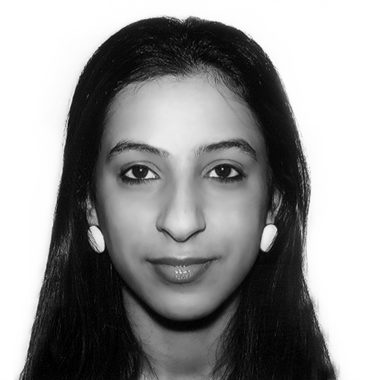
Noor AlKhulaif
Crown Prince International Scholar, London School of Economics
Dear Mrs. Reynolds,
It is with great gratitude that I write this thank you letter to you, to the Catherine B. Reynolds Foundation and to the Academy of Achievement for your generous invitation and sponsorship, and for your hospitality during the 47th International Achievement Summit on the Big Island of Hawaii. I have struggled, not only with sharing the many unforgettable moments of the Summit with family and friends, but also in putting my thoughts together to write to you about my experience, as the magnificence of the event is beyond anyone’s imagination.
Mrs. Reynolds, I was truly blessed with a first-row seat for a four-day lesson in life and a true lifetime experience. This heavenly gathering that celebrated life and achievements was eye opening for me. The entire Summit — from the presentations and panel discussions by the recipients of the Golden Plate Award, and the special guests of the Academy, to the many opportunities to have close and personal conversations with them, as well as socializing with some of the brightest students from all walks of life — helped me have a better understanding of my own personality, even before gaining a better understanding of the world.
It was humbling to see some of the world’s leaders taking the stage to share their experiences with us, from their beginnings to their struggles, their successes and their advice for us students looking to follow in their steps. I could not believe my eyes when I saw Archbishop Desmond Tutu with Her Excellency Ellen Johnson Sirleaf, the President of the Republic of Liberia, together on one stage. There, I think like everyone else, I saw a glimpse of hope coming from the African continent as they were discussing issues like poverty and corruption with a tone of voice that was nothing but optimistic. Seeing such high profile personalities, from the 2008 inductees to the special guests, devoting time to live every moment of the Summit with us — from sharing their meals with us to dancing to tunes from Chuck Berry and Brian Wilson — was humbling, and has certainly kept a constant smile on my face.
I would like to also thank you for the opportunity to visit the Big Island of Hawaii. The wonderful site of the resorts, the beautiful scenery and the hospitality of the people added to the magnificence of the experience. I will always remember this magical island that provided me with the exceptional opportunity to share meals with some of the most influential people in the world. I still closely remember my lunch with Judge William S. Sessions and his wife, who were keen in learning about our backgrounds and interests. I felt a responsibility when Judge Sessions asked for my opinion about the perception of how women are treated in the Middle East. It is this sort of responsibility I have now learned to carry around with me, and one I use to drive me to develop my personality to hopefully be a role model and a good representative of the Arab woman.
I was also lucky to share breakfast on one sunny Hawaiian morning with 2008 inductee David Doubilet, whose work and wise words were fascinating, and who was so kind to give us a closer look into the background of some of the wonderful photos he has taken over the years of life underwater. I also cannot forget how hard the morning of the 6th of July was, since it was putting an end to a life-changing experience. However, having breakfast around a great person like Greg Mortenson could most definitely brighten up anyone’s morning. I was truly mesmerized when hearing about Greg’s unprecedented efforts in Central Asia, and learning how his struggles have only increased his determination to make a difference in the lives of hundreds of Asian girls and their families.
I was most excited during the group discussions on the final day of the Summit. It was a great opportunity to be sitting around the same table as some of the leading figures present. In one of the group discussions I was sitting next to the Mayor of Chicago, the Honorable Richard M. Daley, who was inspiring with his kindness and recognizable work in the city of Chicago. I was also stunned to learn about his determination to create a united society in Chicago, but even more about his efforts to bring mayors from the Middle East together with influential personalities from Chicago for the two groups to share their views and experiences. Also around the table were Dr. Michael Spence and Naomi Klein, who were so generous in giving their expert analysis on different economic and green issues. As an economics student, I was keen on learning their opinions on the credit crisis that hit the world and is threatening to spread recession in many of the world’s leading economies.
In my other group discussion, I was lucky to be with General Wesley Clark, whose knowledge and expertise on issues in the Middle East served as an ice breaker on several occasions, and with the inspiring Greg Mortenson and Khaled Hosseini, who were discussing the issues surrounding the wars and the reform efforts in Central Asia and mainly Afghanistan. I was most impressed to see a success story in the form of Khaled Hosseini, as well as Greg Mortenson’s clear understanding of the culture, religion, demands and many complications of that rich and ancient part of Asia.
I would have to admit that I gained the most inspiration by talking to other student delegates. These are young ladies and men who are not only excelling in their different fields of study, but in their different interests, extra-curricular activities and their entrepreneurial work. At a time when I was starting to be convinced that it will take more than me to make some of my dreams come true, and that the only help I can provide for others will be of a small scale, limited by my abilities, I met students who have initiated projects and made huge differences in the lives of many people all on their own, driven by their belief and determination. They have shown me that being young is not synonymous to being incapable, and that a one-man show, when combined with determination and hard work, can fulfill dreams and accomplish great results. I now look at my dreams as potential future projects that I am going to keep in front of my eyes to help me move ahead. Thank you so much for making this possible.
This letter would not be complete without sending my deepest regards to His Highness Sheikh Salman bin Hamad Al Khalifa, Crown Prince of Bahrain, for nominating me to be part of this year’s International Achievement Summit, and for his continuous help, support and belief in me. In conclusion, I would like to thank you again from the bottom of my heart for the opportunity to be a student delegate at this year’s International Achievement Summit, and for the many lessons I have learned. I will use those valuable lessons to empower myself and to help me reach my dreams. I know I have already said this once before, but you have changed the life of a simple Bahraini woman, so thank you very much, Mrs. Reynolds.
Warmest regards,
Noor AlKhulaif
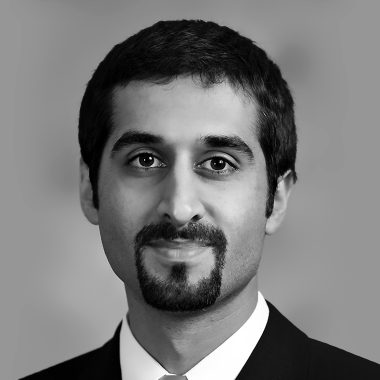
Amir Khan Durrani
Howard Hughes Fellow, Cleveland Clinic, Lerner College of Medicine
Dear Mrs. Reynolds,
I want to convey a heartfelt “thank you” for your kindness in hosting me as a Student Delegate to the 2008 Achievement Summit. Just as Mr. Spencer Kinard predicted on the final night of the Summit, putting all of the memories together and explaining them to family and friends has been as surreal an experience as the conference itself. As a future physician, most of the venues I participate in are rigorous scientific gatherings that emphasize clinical advances or scientific research findings. This conference reminded me that there are so many fascinating ways to influence the world outside of the direction I chose. I thoroughly enjoyed listening to such wide swaths of information and diverse knowledge being exchanged, ranging from corporate and world economics, to greater understandings in history, and achievements in the arts and literature.
However, a common element to all the talks, embodied by each member of the Academy, was progress connected to making this world a far better place. Truthfully, I am sure each student felt the same rises and ebbs that I did. There are moments of inspiration and then moments of self-doubt. After all, these people advanced their respective fields with terrific efficiency, and many of them did so at an early age. We begin to ask ourselves, can we ever rise to those heights? The moments in between the seminars were crucial to answering these questions. When a great scientist like Dr. James E. Thompson, one of the fathers of stem cell research, tells you a personal story that describes someone who wondered about their own life’s trajectory all along the way, something interesting occurs. I began to understand that a combination of hard work and a deep respect for the unknown are important ingredients to being content with whatever accomplishments we all strive for in our respective life paths.
Every talk was important, but there were many that raised a sense of awareness and others that were a call to action. More often than not, these achievers went beyond telling their story. They gave us the basis and the direction to use the education and skills we amass for practical ends that will leave the world a far better place.
Even before this important milestone event in my life that the Summit represented, I often said to my wife that before I leave this world I want to impart something tangible that improves the human condition. People like Greg Mortenson, the author of Three Cups of Tea, and writers like Nicholas Kristof have made the best of this gift called life and have done that already. Their tales of perseverance and faith in the inherent ability to rise to any challenge did more than inspire; they were practical layouts of how to go about leaving behind that tangible good I just spoke of.
It was a humbling experience to have General Wesley Clark and other prominent individuals, like David Gergen, with vast knowledge of foreign policy, talk to me about improving conditions in Afghanistan, the land that my parents came from.
It was equally humbling when someone of General Clark’s stature asked me, a Student Delegate, to take a seat next to him on a panel regarding strategy to curtail the continuing turmoil in the borderlands between Afghanistan and Pakistan. The notion of respect for a people’s heritage and religious ideals coupled with enabling them to be self-sufficient in due time was prevalent in the mouths of many participants in that gathering. I thought to myself that if these same folks were given a greater hand in formulating important policy decisions towards the Pashtun belt, a noble and remarkable people could finally rise to their full potential and take control of the portion of their own destiny. It was intellectually and personally satisfying to ask Dr. Khaled Hosseini about the potential of perpetuating stereotypes and exacerbating ethnic Afghan tensions when works like The Kite Runner are injected in the fray to an American public predominantly unlettered in Afghan history. These trying times demand urgent diplomacy and historical honesty on the part of Afghan émigrés to the American people, and the chance to talk with Dr. Hosseini about whether The Kite Runner might be the new vanguard of orientalism in a world that already has drawn tense boundaries, more from not knowing than from actual differences, was a once-in-a-lifetime opportunity. In the end, Mrs. Reynolds, I offer my gratitude, accompanied by a promise to do my best to live up to your expectations, both as a student delegate and as a fellow Vanderbilt University alumnus.
All my best regards,
Amir Khan Durrani
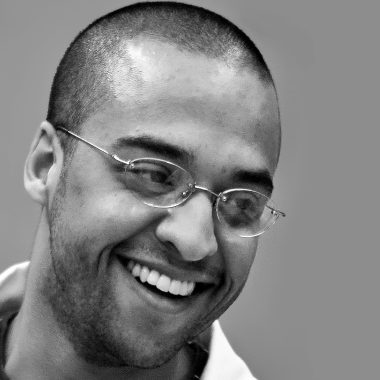
Ajay Malhotra
Howard Hughes Fellow, Keck School of Medicine, University of Southern California
Dear Mrs. Reynolds,
I first want to profusely apologize for the lateness of this letter. While moving around the country and clinical clerkships have played a role in its delay, I also needed time to pause and reflect on my time at the International Achievement Summit in Kona.
Foremost in my mind is the immense amount of gratitude that I want to convey to you and your foundation for the wonderful opportunity that you have given me to attend this amazing conference. I simply cannot express how much the opportunity has meant to me. I also want to thank the staff at the Academy of Achievement whose efforts and work put into the conference did not go unnoticed. The Summit was extraordinarily well done and the staff should be proud of their execution of the International Achievement Summit.
In the months since the Summit, I have looked back at the pictures I have of the conference, and a smile seems to creep upon my face because I have nothing but wonderful memories from those five days. In the short time that I was in Kona — and I think that no matter the Summit’s duration it would have been too short — I met both current idols and fascinating student delegates who are sure to be idolized by many down the road. In the first night alone, I had dinner with journalist Sam Donaldson, his wife Jan Smith, and a number of student delegates involved in the military. We proceeded to have the most interesting conversation about the composition of the Supreme Court and the evolution of Supreme Court decisions. While journalists who cover the Court often shape my assessment of its verdicts, it was incredible to hear firsthand such varied opinions as were present at the table. It was that first moment when we sat down at our tables for dinner, introduced ourselves, and all sat as colleagues, that I knew I would be in for an unforgettable experience. It is a testament to the conference that I now have a hard time watching the news with Mr. Donaldson without thinking about how much I miss his animated retelling of events.
The conference in Kona was not entirely made for me in an exact moment, as it was for some of my other colleagues. There were specific punctuated moments that I will surely never forget: Frank McCourt telling of his times teaching at Stuyvesant High School; meeting Mayor Villaraigosa and then subsequently having drinks on the beautiful Hawaiian beach with him while talking about health care delivery in Los Angeles; having breakfast with Archbishop Desmond Tutu and lunch with Nicholas Kristof on the same day; dancing to Dr. Francis Collins singing “House of the Rising Sun” on the beach late at night. I could go on about the moments that made the Summit special to me, but it really was so much more than individual moments. It was the collection of moments that made the Summit special, and what I will do with those moments hereon, that have so profoundly affected me.
Since the conference, I have spoken to some of the other delegates, my new friends, and I realize that the 2008 International Achievement Summit is still taking place in some ways. Not only do I now have a rich collection of people from whom I can draw the most interesting array of expertise, but we now share the commonality of the conference that we can all look back on with awe and enjoyment. Before this conference, I did not know what a navy pilot turned law student, or a lawyer-cum-civil rights advocate, would have in common with me, a medical student and cancer researcher. I now know our common goals are enough to bring us together. Often it is very easy to become so specialized in the realm of study and in our area of specialization that it’s easy to lose sight of the greater world around us. As a basic science researcher, one quickly becomes aware of the resistance to collaboration because of how much scientific funding is based upon reaching a conclusion before your competitor. Basically, when one lab can produce an answer before another, it becomes a winner-take-all proposition and creates an atmosphere tending towards the toxic. However, what I appreciated most about the Achievement Summit was that often we were not there to identify answers to small questions. In fact, we were identifying the large questions and building road maps towards answers; themes like “How can we alleviate human suffering and disease?” and “What is success?” and “How do we achieve?” that were routinely mulled over. Ingenious. After hearing the stories of the other delegates and listening to their stories, I started to understand. I began to understand how we all shared similar goals.
The Summit was also a moment that allowed me to pause and realize that my idols, the people who are the leaders in fields I respect greatly, are also simply people who were inspired and led into greatness. At some point, those whom I had placed on a pedestal were also students like me and yearned to make a lasting impact.
I think one of the most profound take-home moments for me was when Dr. Peter Agre and I were talking one night and I jokingly asked him what the secret to winning a Nobel was. He turned to me, and with grave sincerity said, “Don’t do that. Don’t think of some prize as a goal. Go towards a point of inspiration and things may happen on the side. Go with what you think is right if you really believe it.”
It is a point that I have held dear since that day.
I guess the point of this conference was not merely to have a good time on the beach in Hawai’i (which we all truly did). I think that the point of the conference is to take something from everyone there and then use it to do great things. I have the former part down. I can only hope that I do the latter portion as well now.
Mrs. Reynolds, I hope that our paths may cross again one day. I hope when that day comes I will be doing something with the newfound knowledge that I have, and I can show you how much this conference has meant to me.
With warmest regards,
Ajay Malhotra
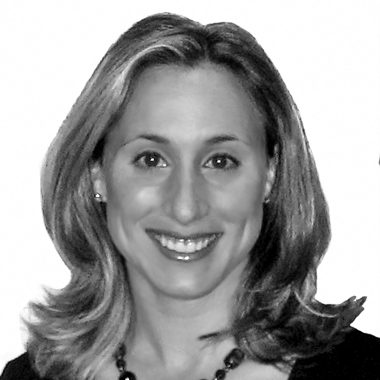
Ashley Wysong
Howard Hughes Fellow, Duke University School of Medicine
Dear Mrs. Reynolds,
I have sat down to write this letter to you literally dozens of times. Now, months from our surreal experience in Kailua-Kona, Hawaii, I am still at a loss of words to describe how significantly our five days together has impacted my life. I cannot thank you, Mr. Reynolds, and the Catherine B. Reynolds Foundation enough for your overwhelming generosity in sponsoring and hosting me at the 2008 International Achievement Summit. From the moment we stepped foot onto Hawaiian soil at the beautiful, open aired Kona Airport, I knew that it was going to be an unforgettable week. I remember smelling the fresh Hawaiian air with a hint of floral as I met the first group of amazing student delegates. Little did I know how integral the Academy of Achievement would be at a pivotal time in my life.
From formal sessions to casual meetings, I was amazed by the quality of interactions and generosity of time from the many esteemed members of the Academy. The first morning in Kona, I decided to watch the sun come up from a lounge chair on the shores of the Pacific Ocean. On the beach, with the stars still in the sky, a hotel guest joined me and mentioned during small talk that he was a physician-scientist. As a medical student, and budding researcher myself, I was intrigued. Watching the sunrise, we had a fascinating conversation about how he started his career and balanced the demands of medicine, research, and family. Little did I know, I was having a casual discussion with James Thomson, the first scientist to isolate embryonic stem cells and recently named one of the most influential people in the world. He was so humble, unassuming, and down to earth. All this, and the Summit had yet to officially begin.
The first formal speaker, Ken Griffin, encouraged us to take risks and “ignite our passions” rather than doing what is expected. This sentiment spoke to me, as a fourth year medical student struggling to decide on a medical specialty and career. To date, no single field had truly inspired me nor united all my interests the way I had imagined. I was longing for guidance, stimulation, and direction. Naomi Judd spoke about “knowing yourself” and “reflecting on your early beliefs and experiences” before making decisions about what to do with your life.
Later that morning, W.S. Merwin said to “never write anything anyone else can write or that you’ve already written before” and encouraged us to “do only what only you can be doing.” Again, we heard a message of bigger purpose and a challenge to find one’s unique place in the world.
Scott Berg, the biographer, solidified the message, reminding us — while recounting fascinating stories about Woodrow Wilson, Charles Lindberg and others — that “individual lives make a difference.”
As the Summit went on, I found myself continuously reflecting on the insights gained from panels, sessions, and conversations with fellow student delegates and Academy members. It was truly amazing to discuss the conflict in Iraq with General Wesley Clark over an after dinner drink, to hear the future directions of the National Institutes of Health directly from Director Elias Zerhouni, and to discuss the future of science with Francis Collins immediately after hearing him sing and play the guitar. But even more impressive was watching the collaboration between so many exceptional hearts and diverse minds. This environment challenged me to re-evaluate my ideas about what I really wanted from my medical career.
Not only successful in respective fields, but happy and accomplished in life, the many distinguished members of the Academy inspired me. Returning to Duke, I had big decisions to make. I decided to use W.S. Merwin’s advice to find the career and life plan that only I could do. Combining my research background in cancer biology, my clinical interests in skin conditions, and my love of teaching and inspiring the next generation, I’ve decided on a career in academic dermatology. In addition, as a long-time athlete, I’ve been working on starting a Foundation for promoting sun protection and prevention of skin cancer in athletes of all ages and ability levels. I am the happiest I have ever been, am excited to go to the hospital each day, and am thrilled about what is to come. I have you, the Academy of Achievement, and the Catherine B. Reynolds Foundation to thank for truly changing the course of my life. You have my deepest gratitude for the friendships made, the life lessons learned, and the inspiration and motivation to last a lifetime.
Sincerely,
Ashley Wysong
